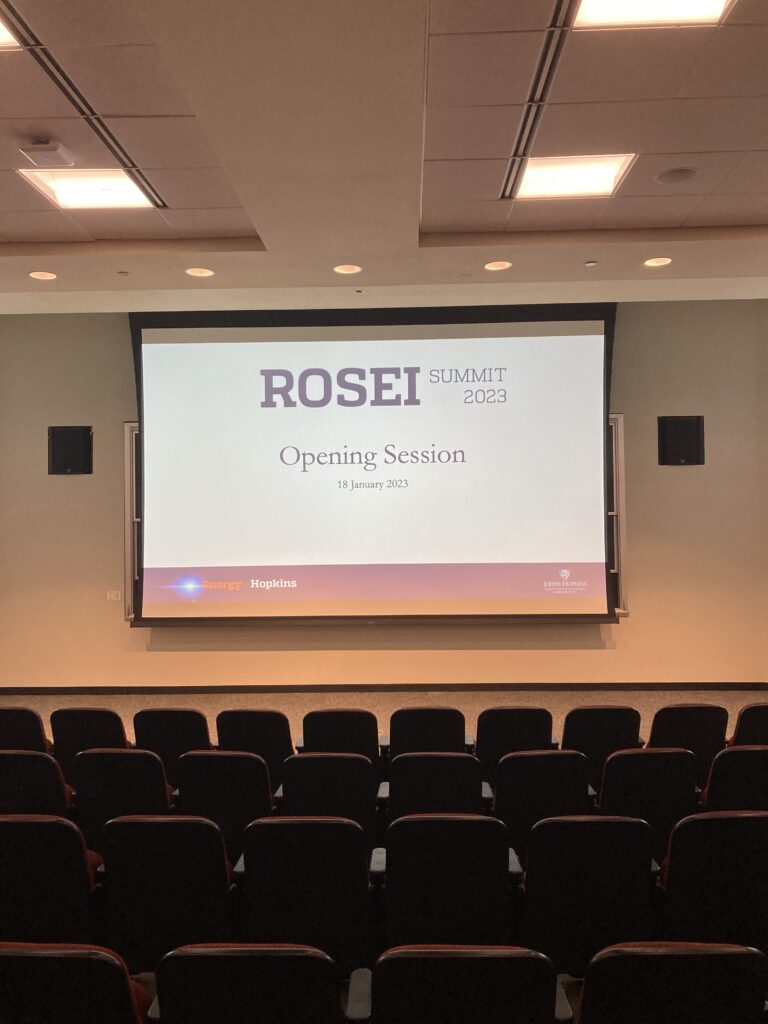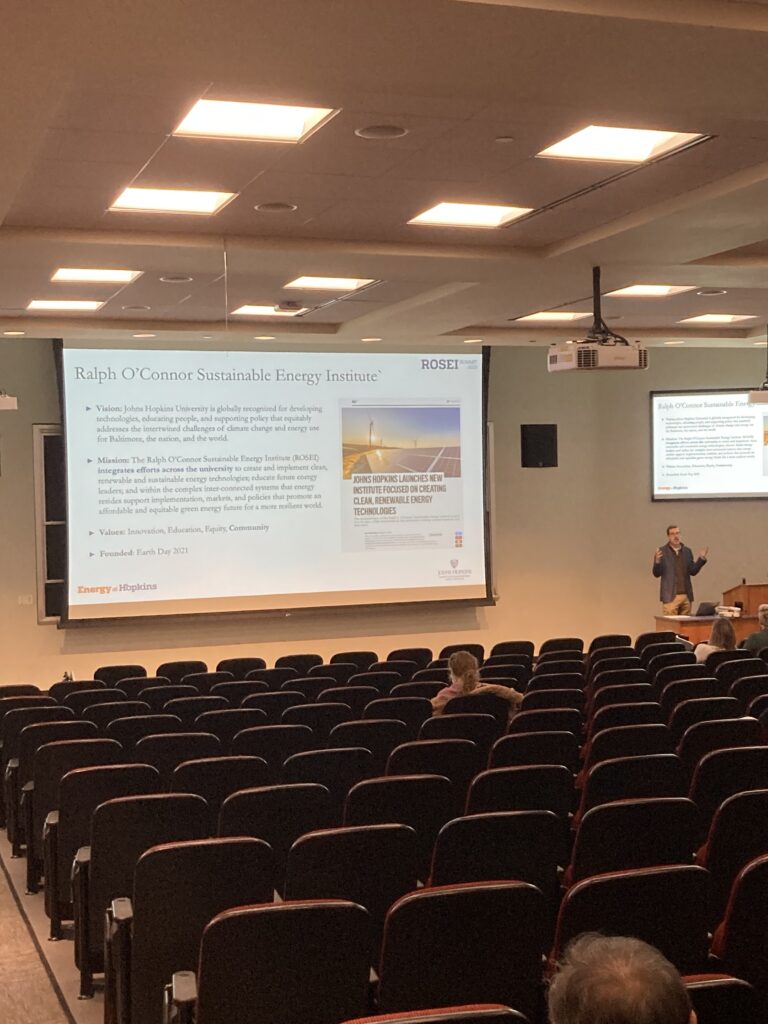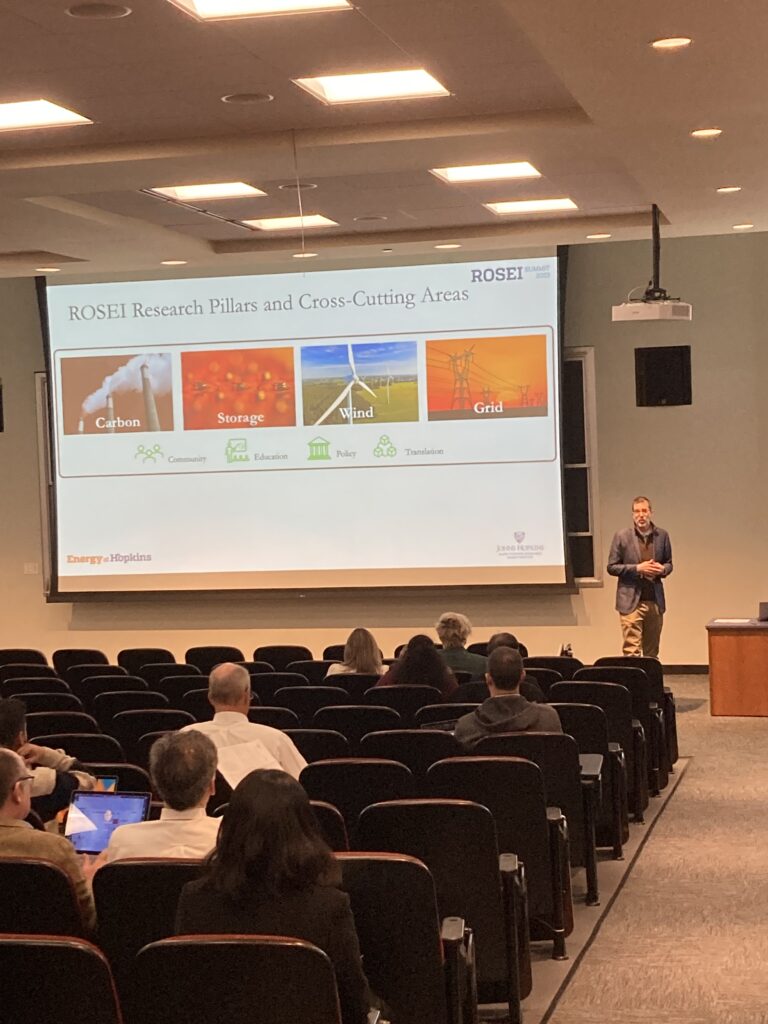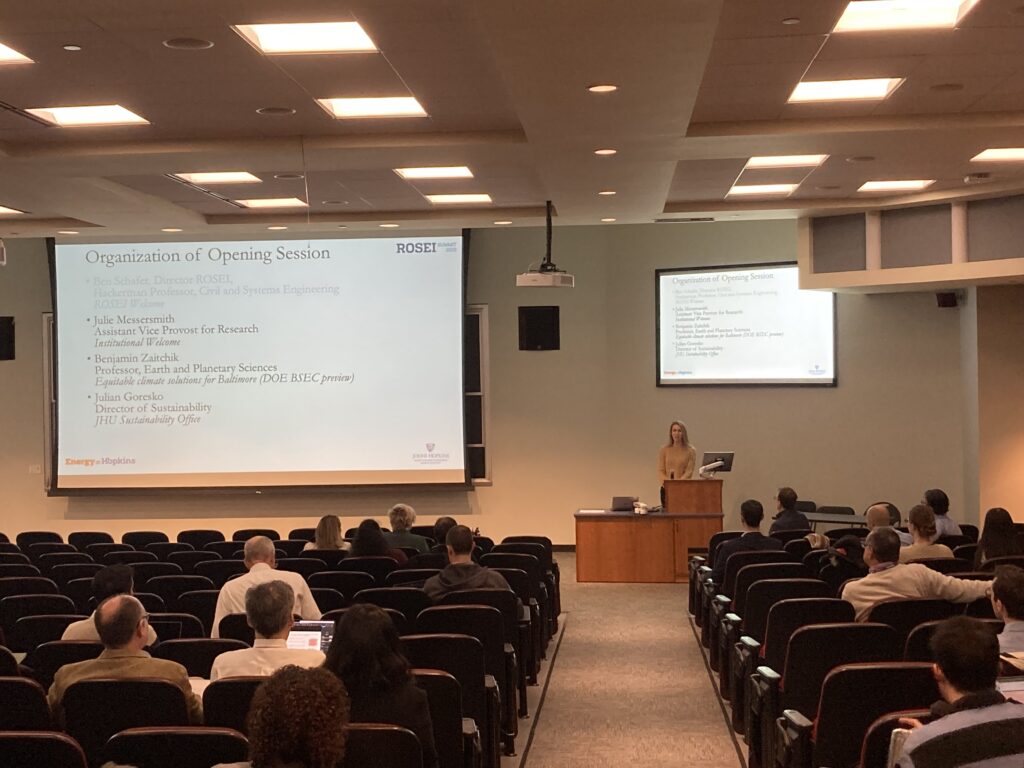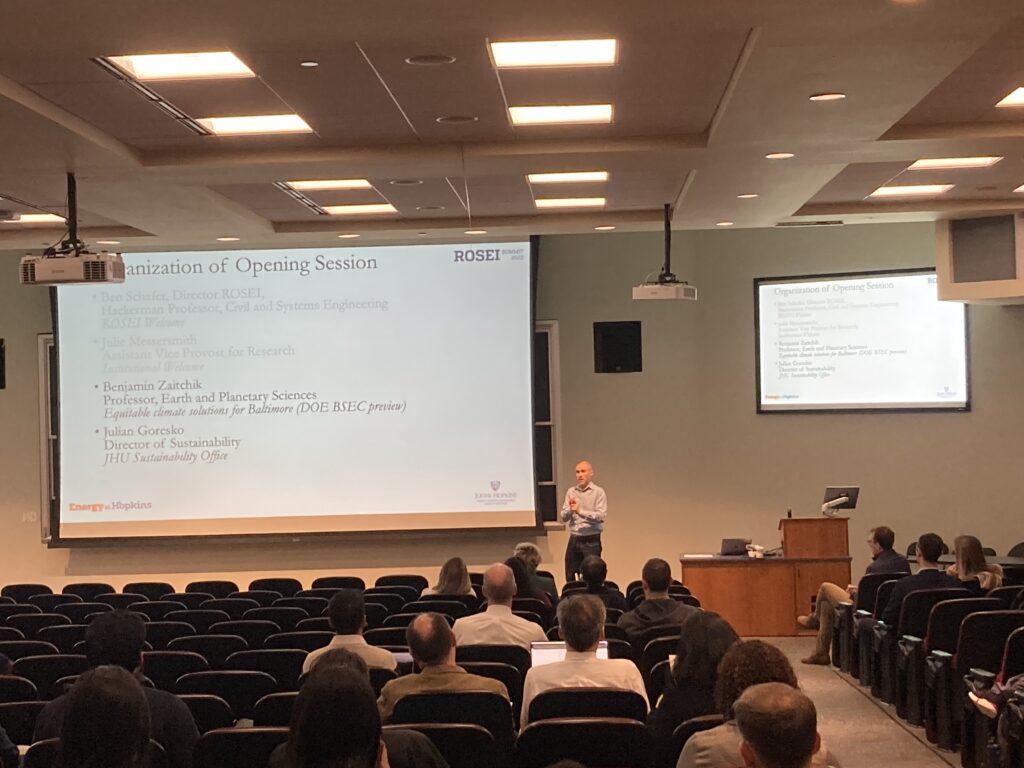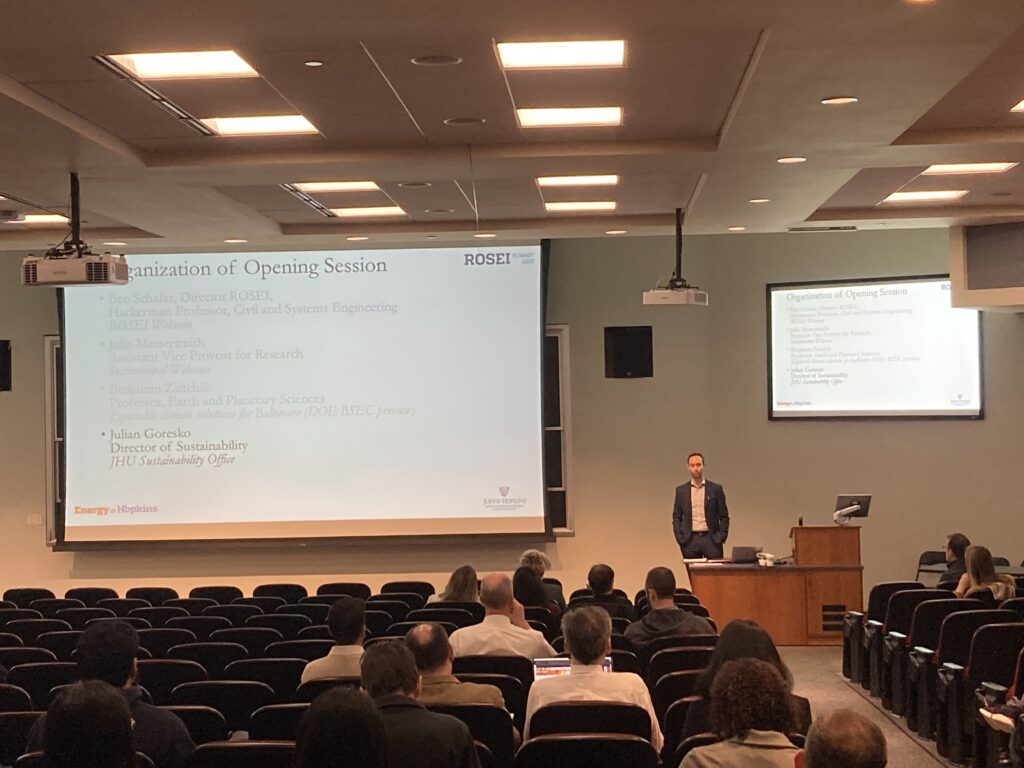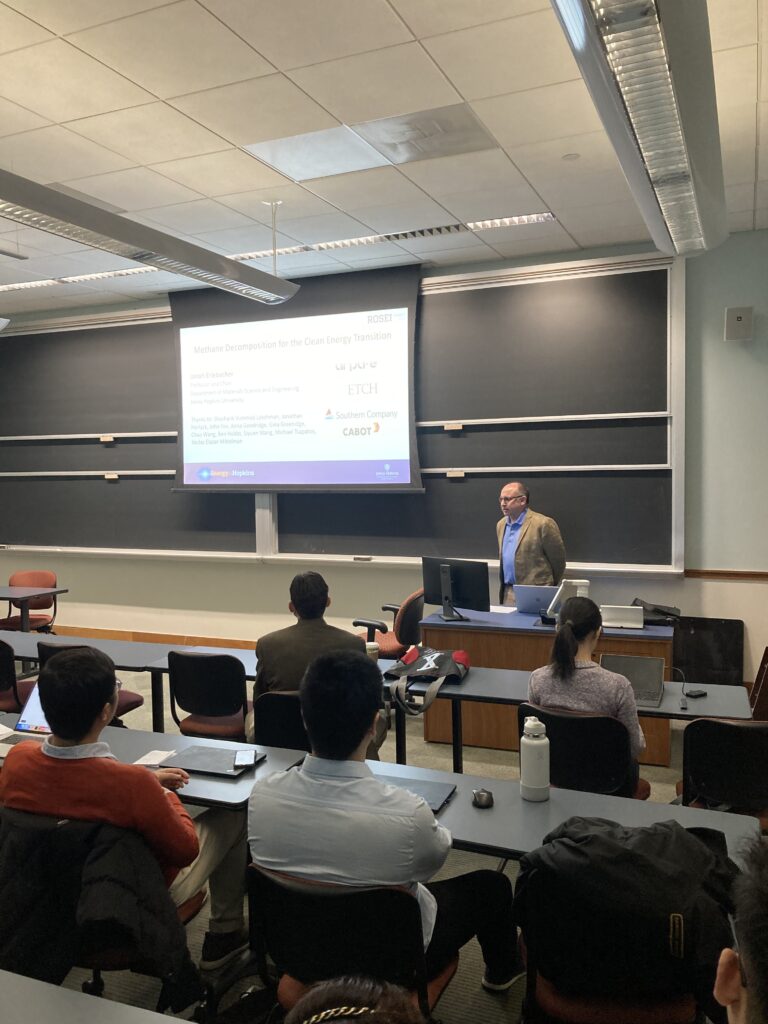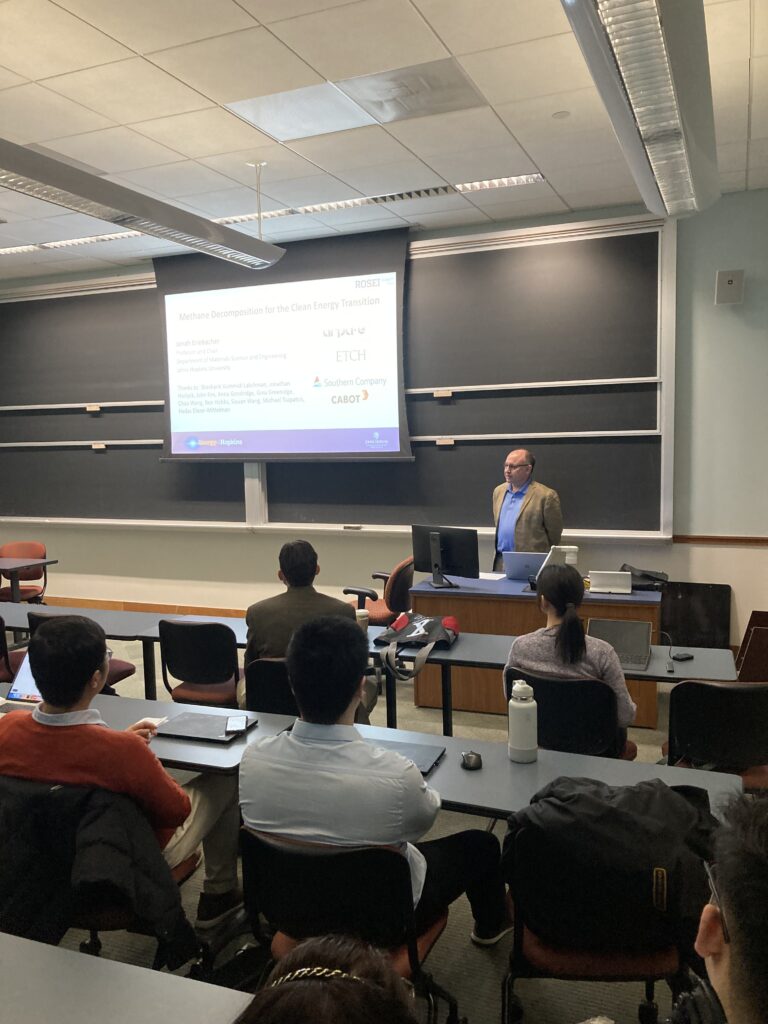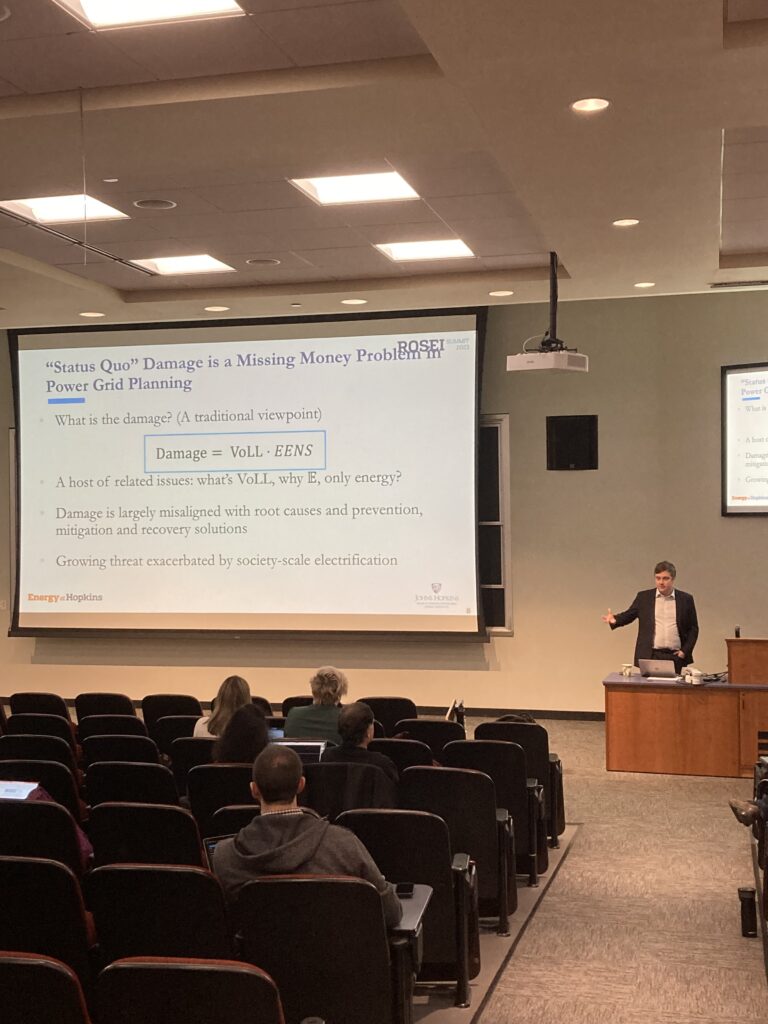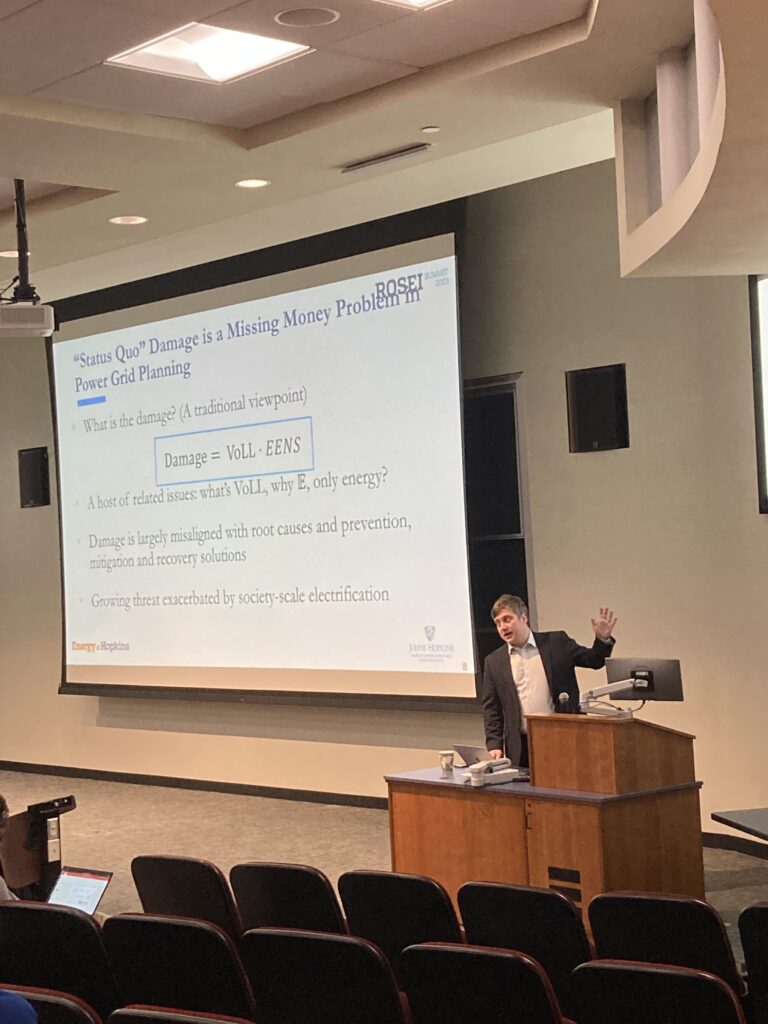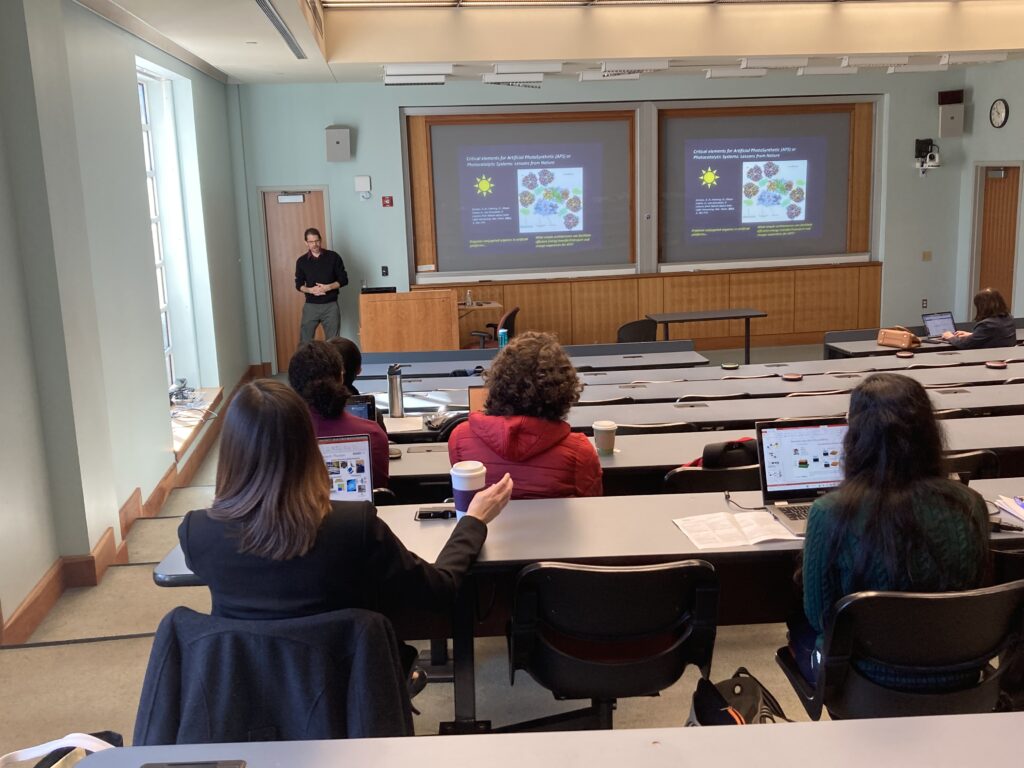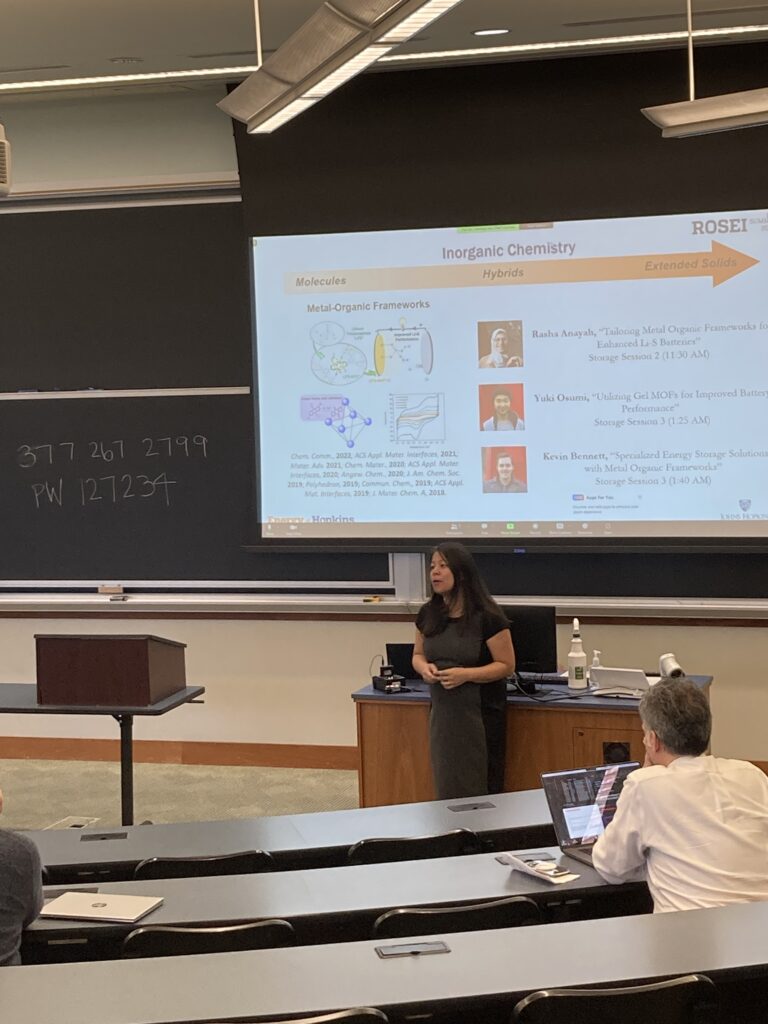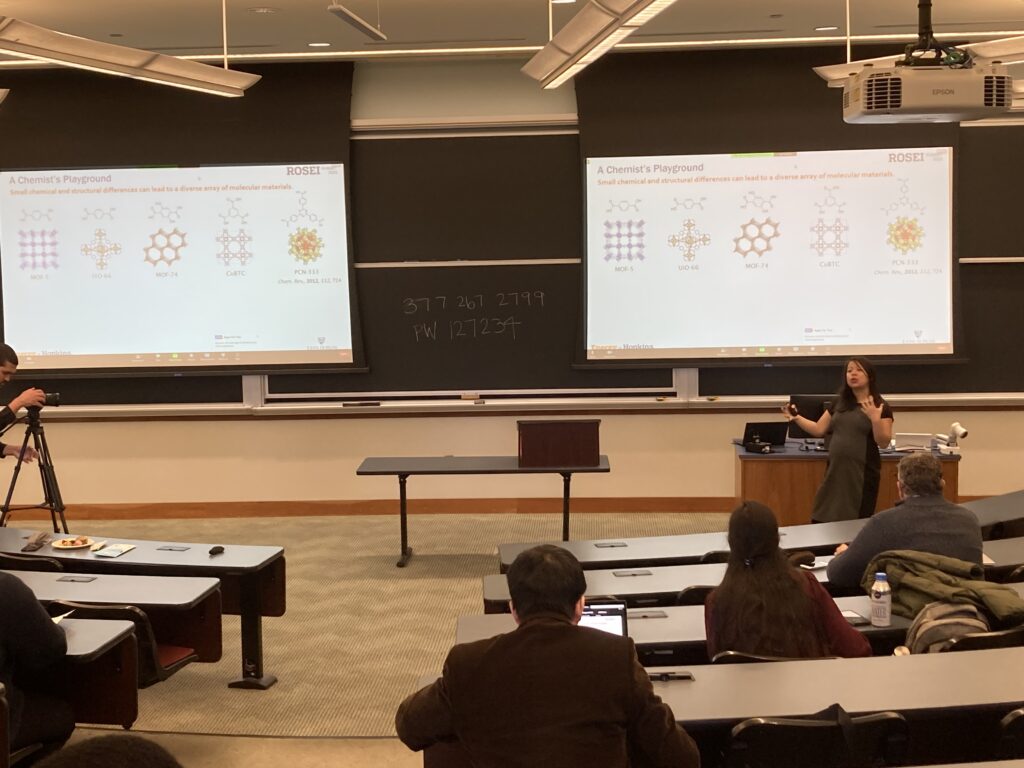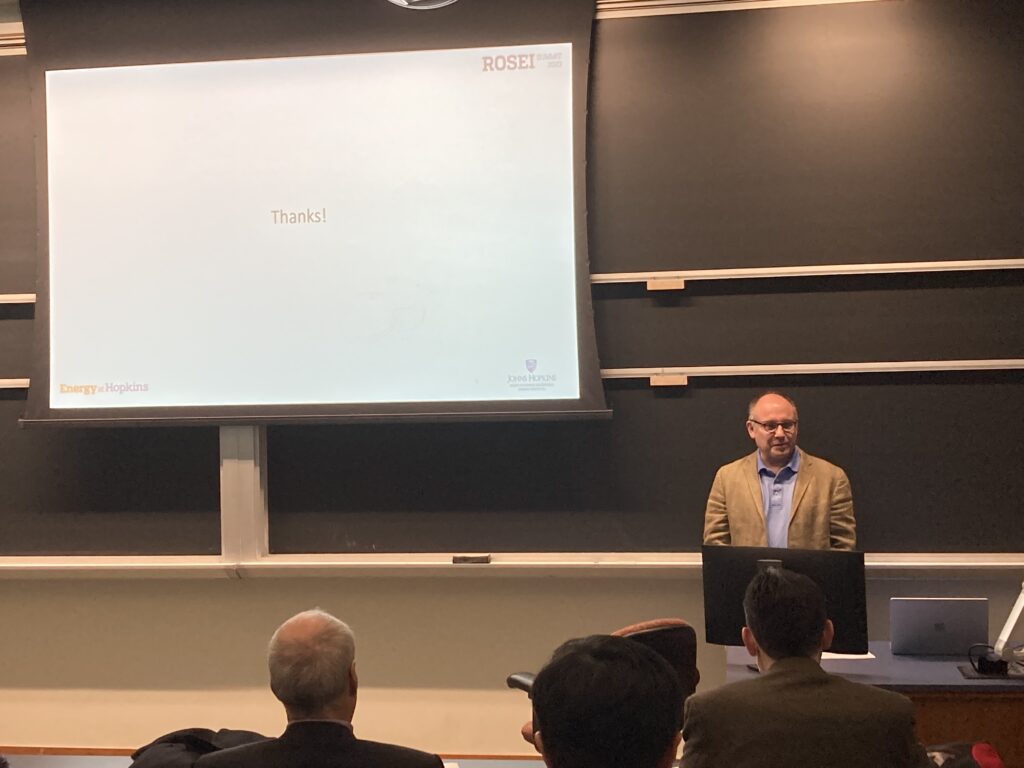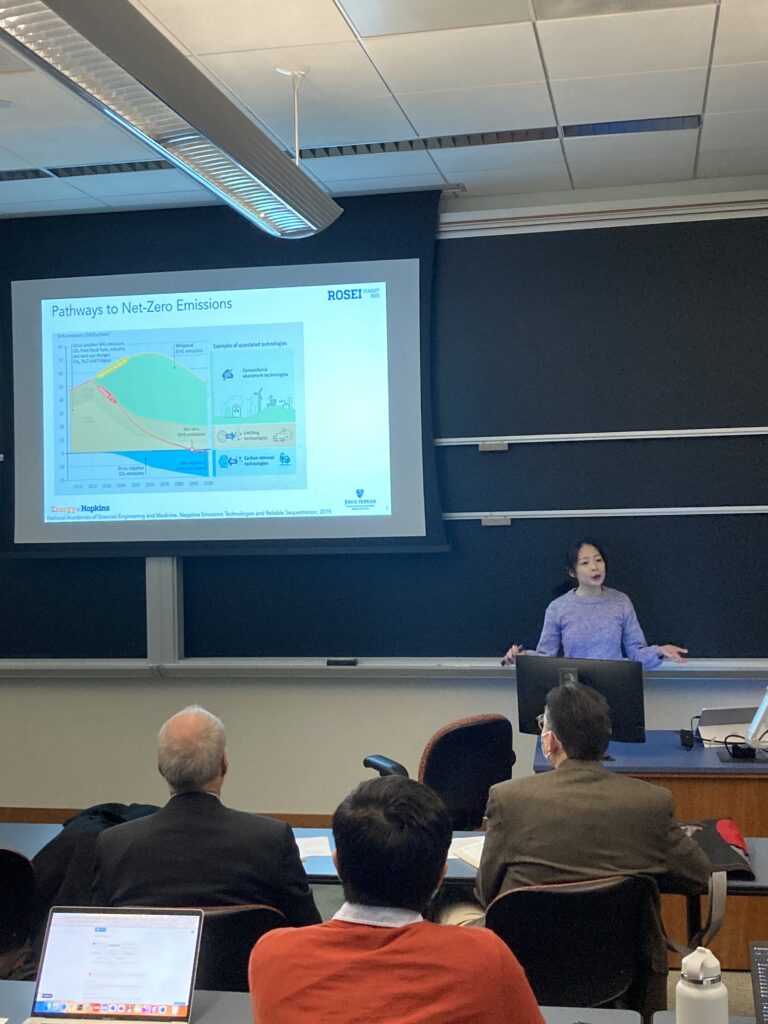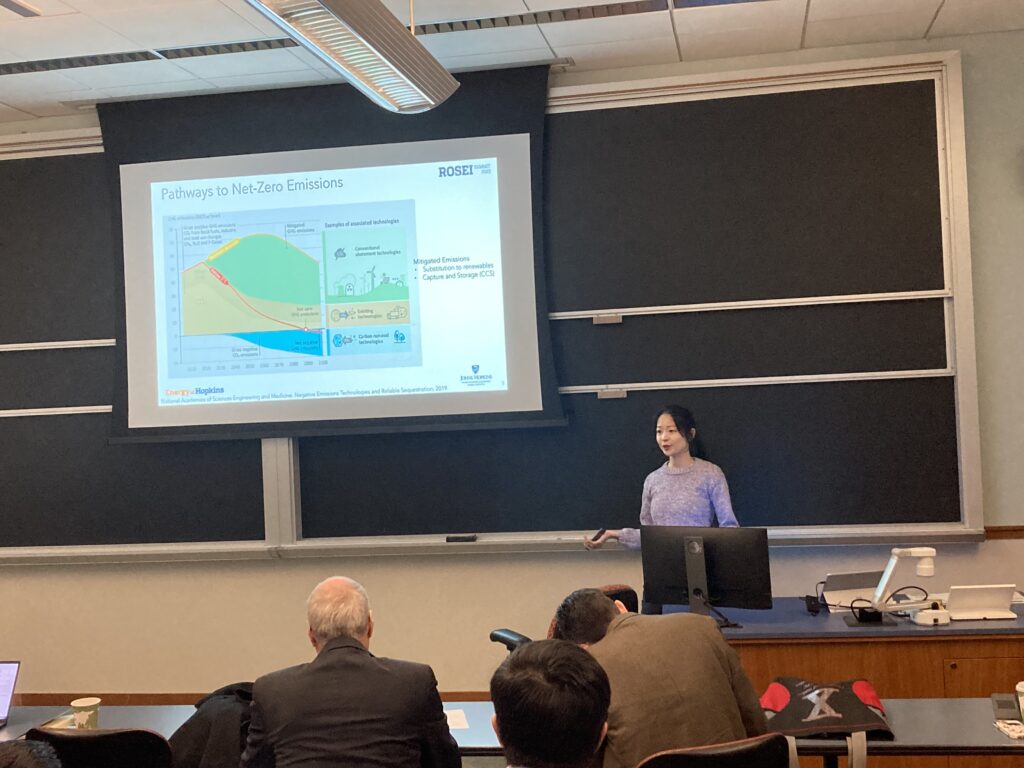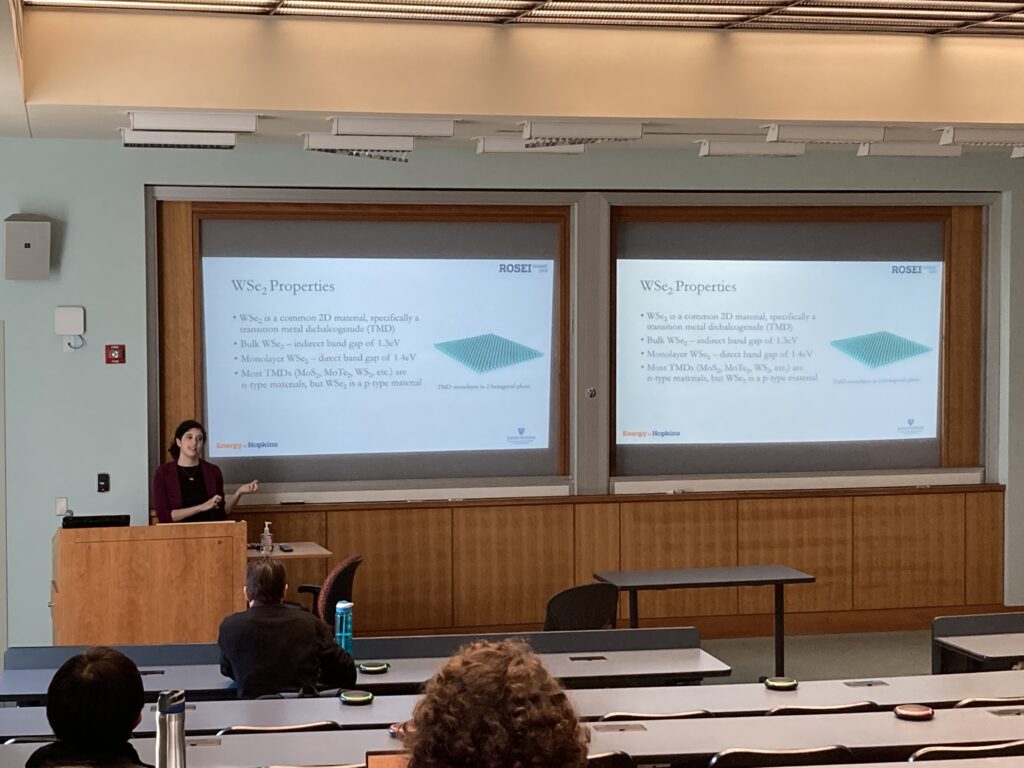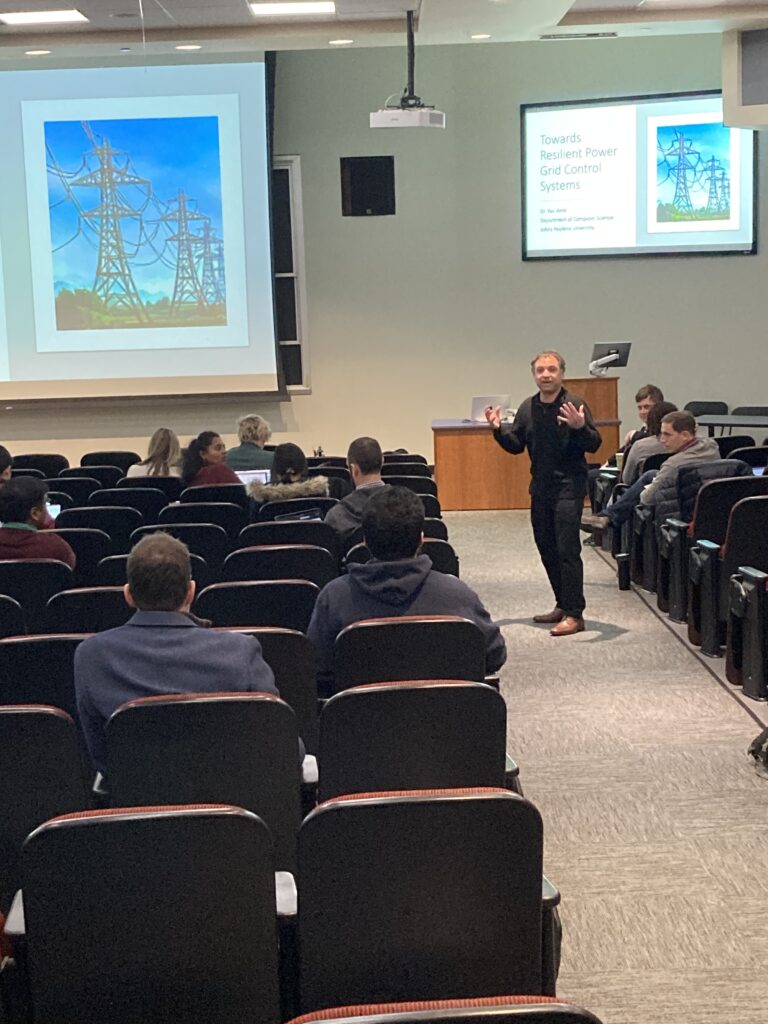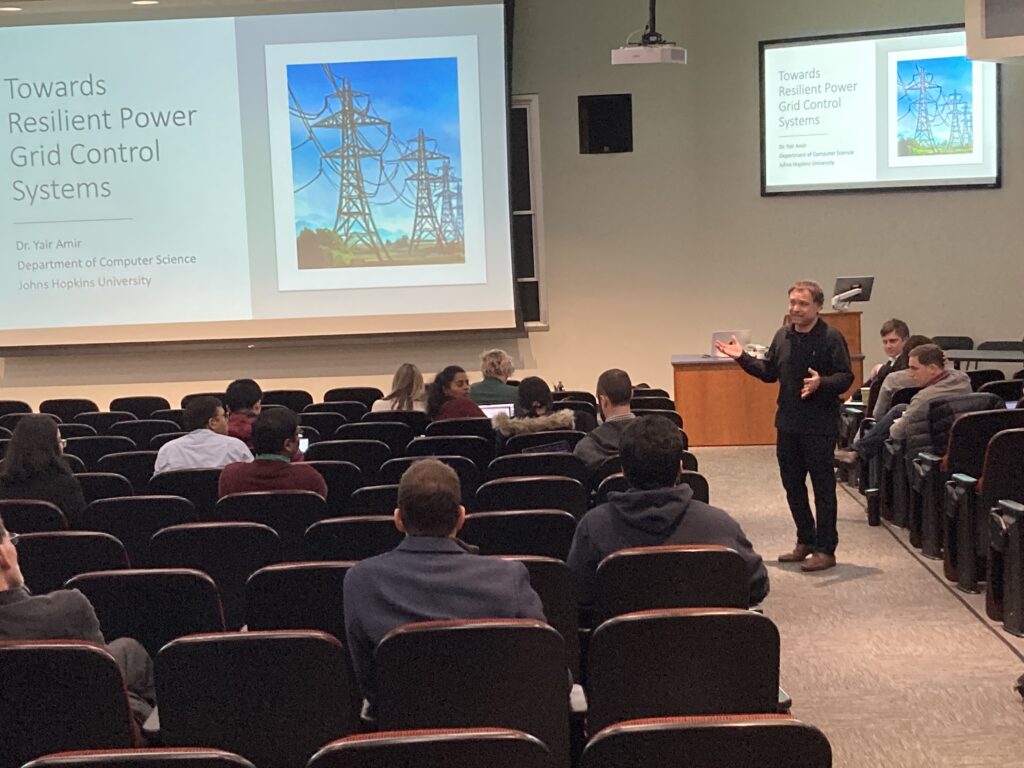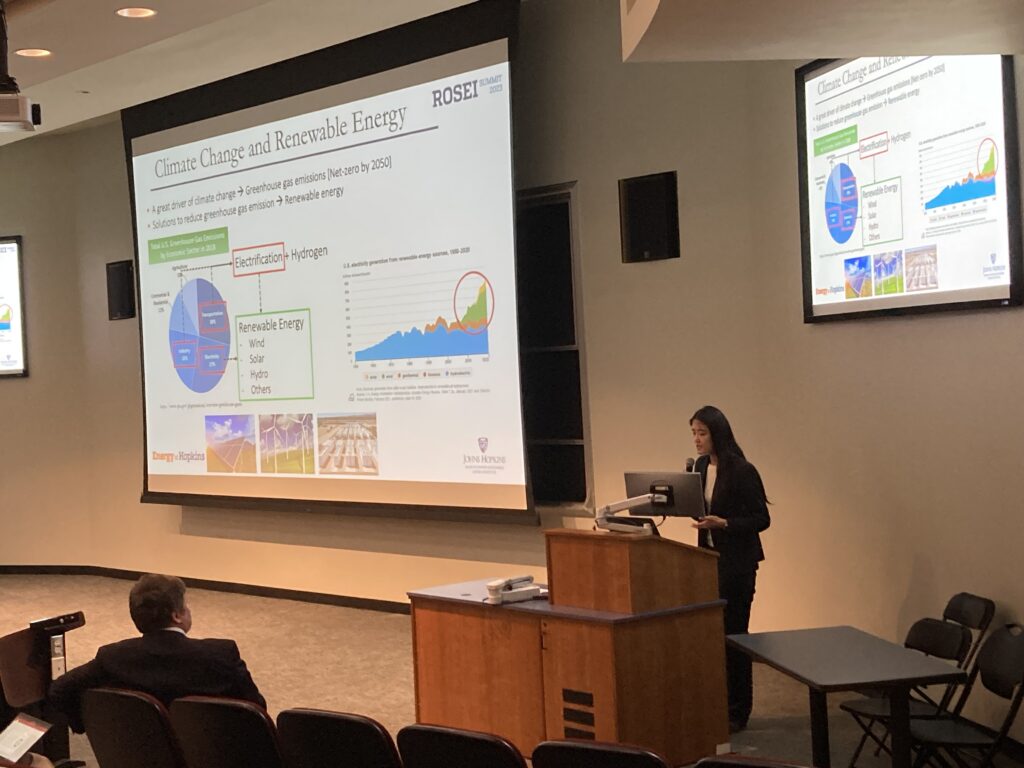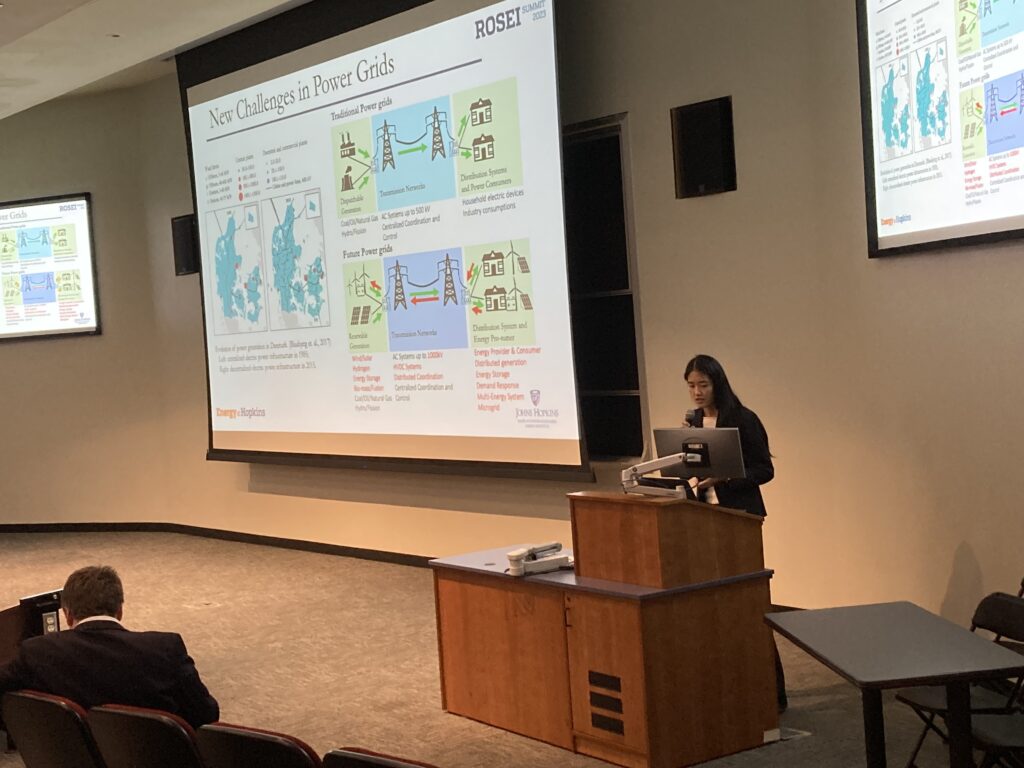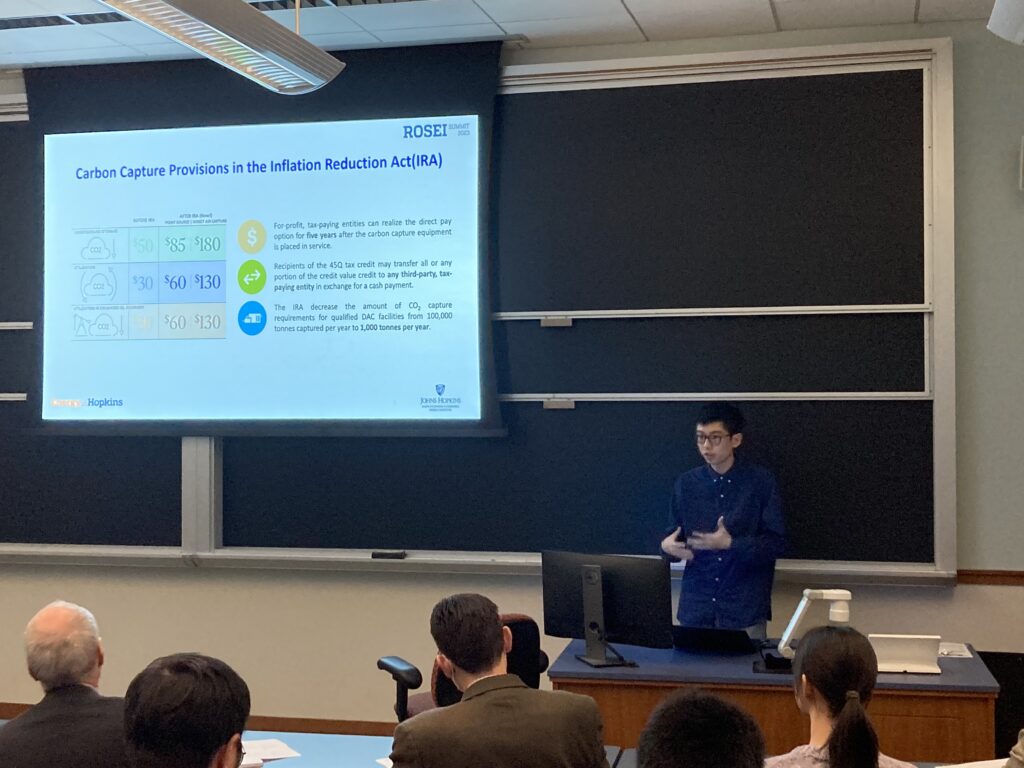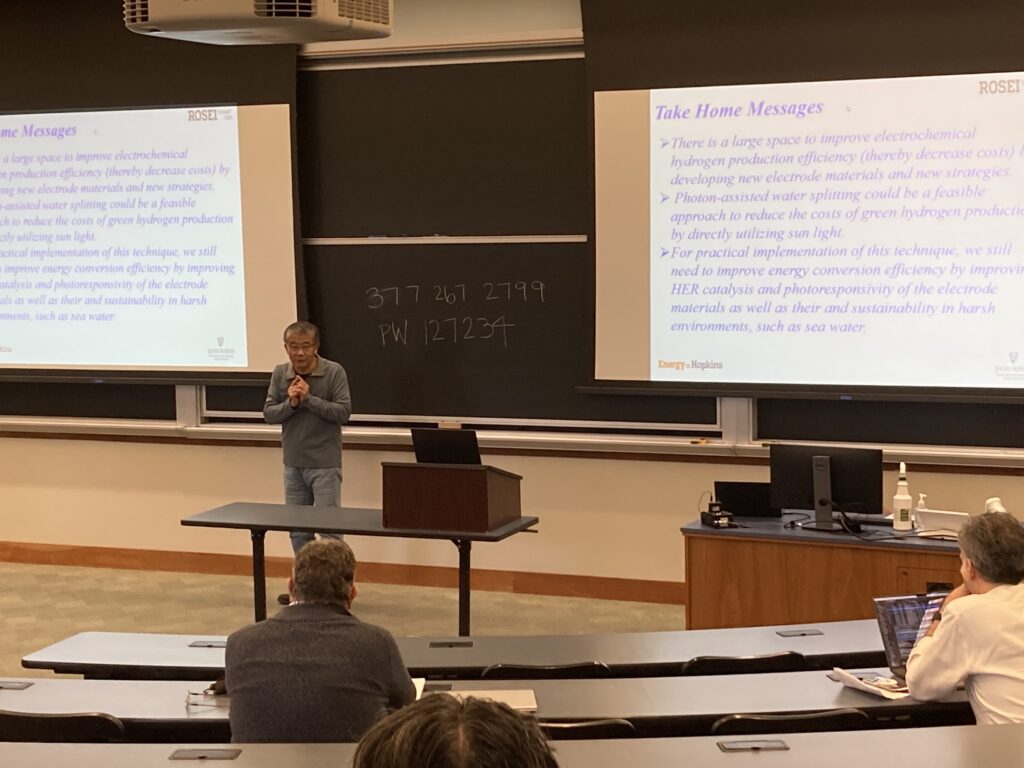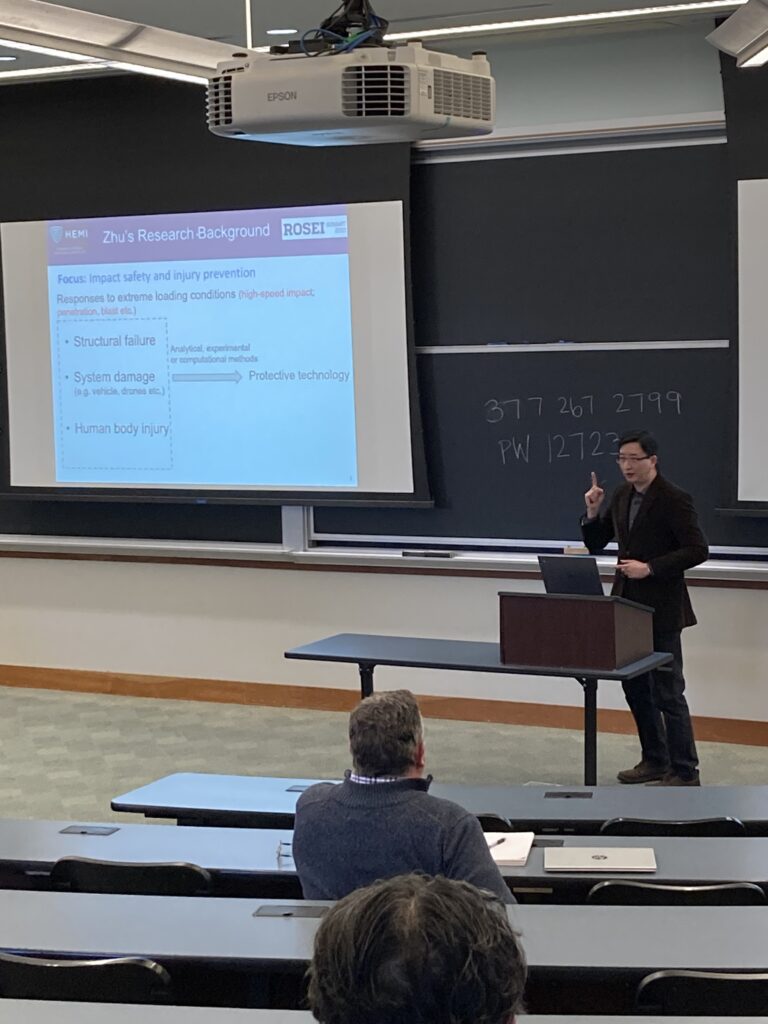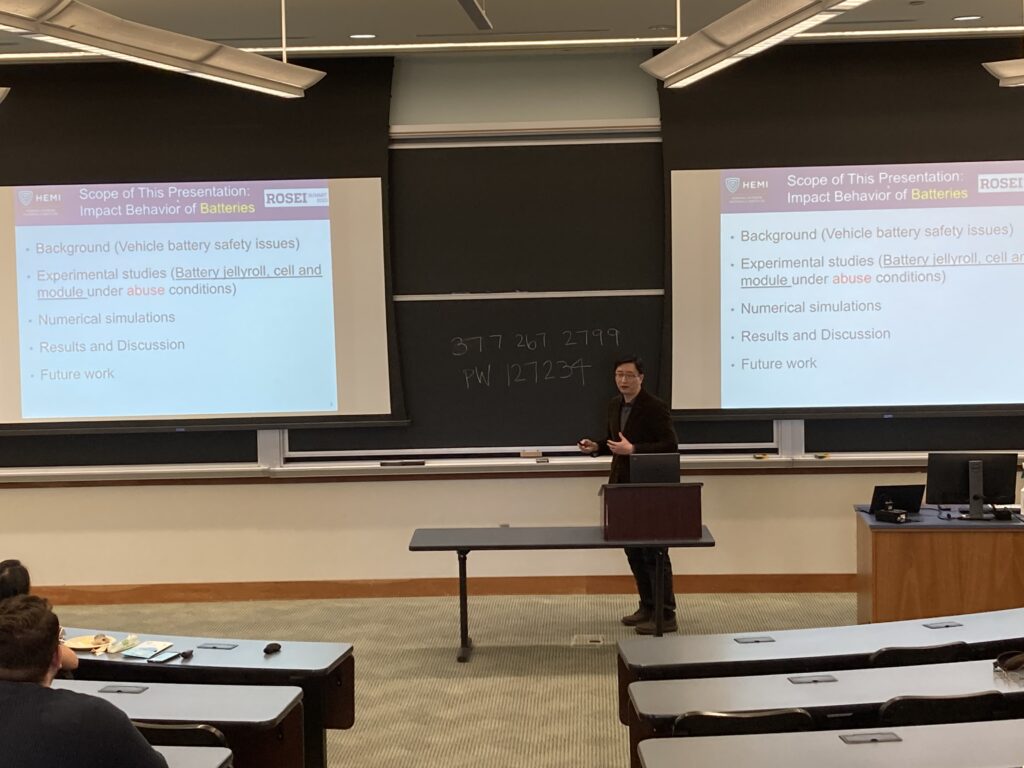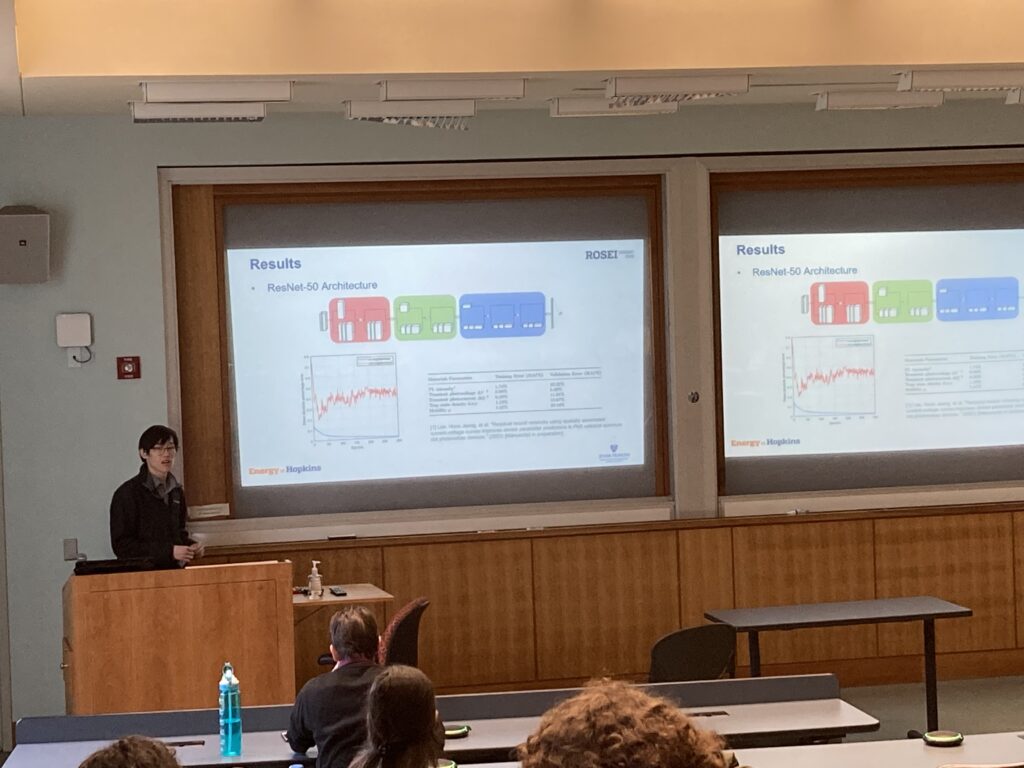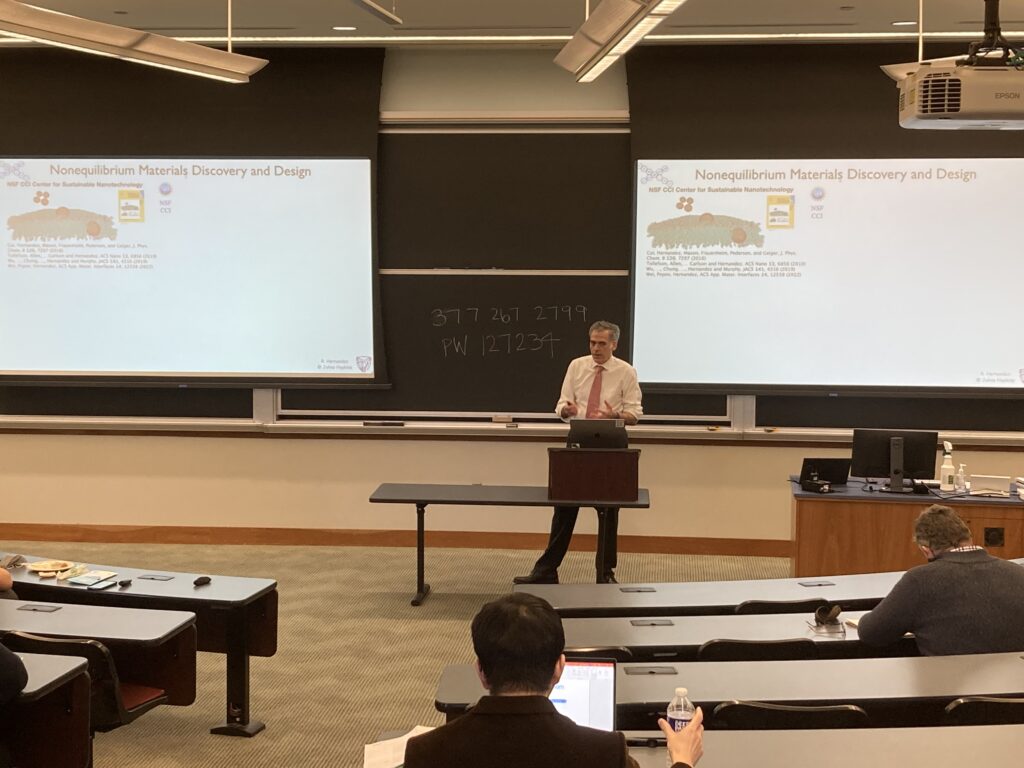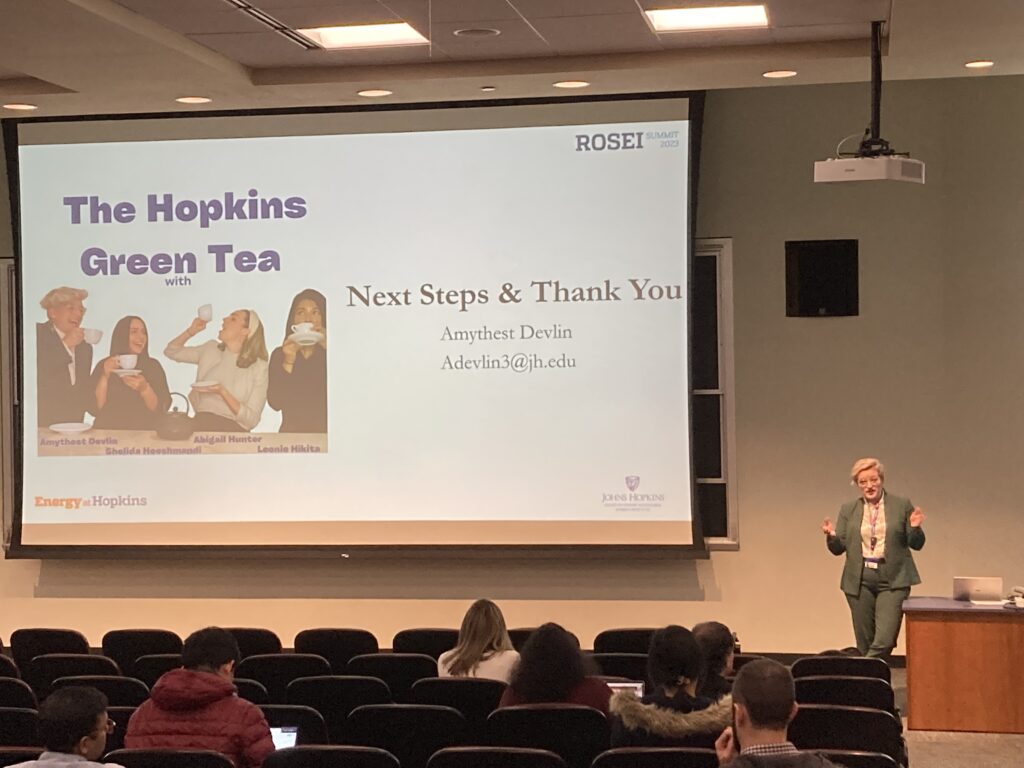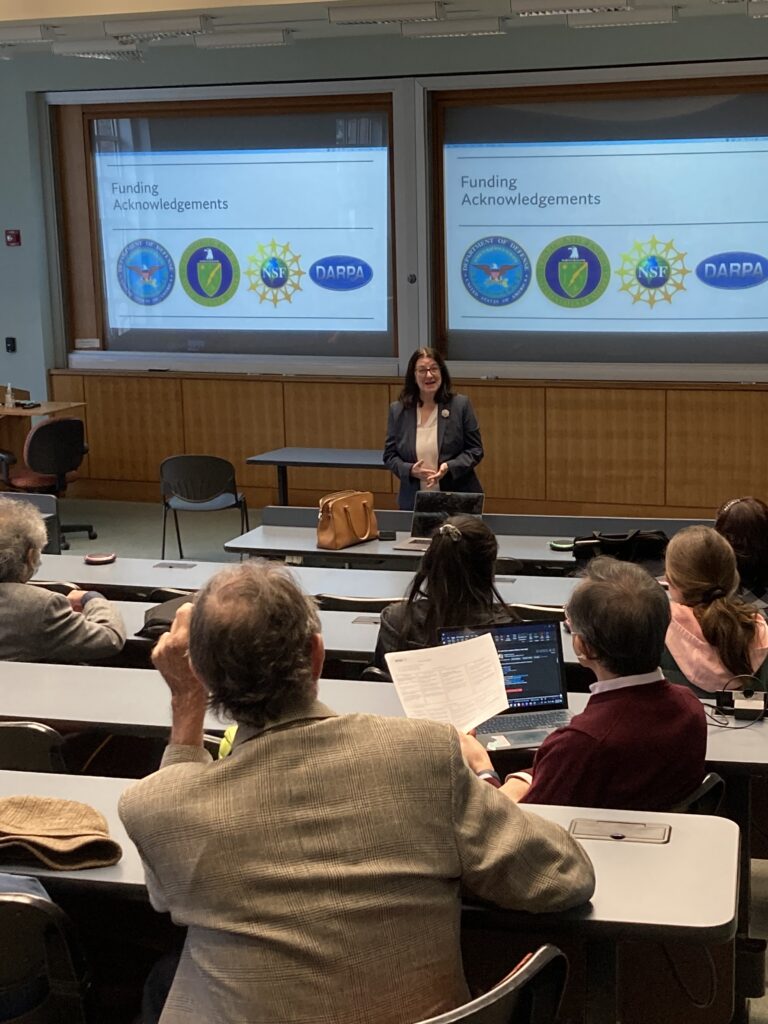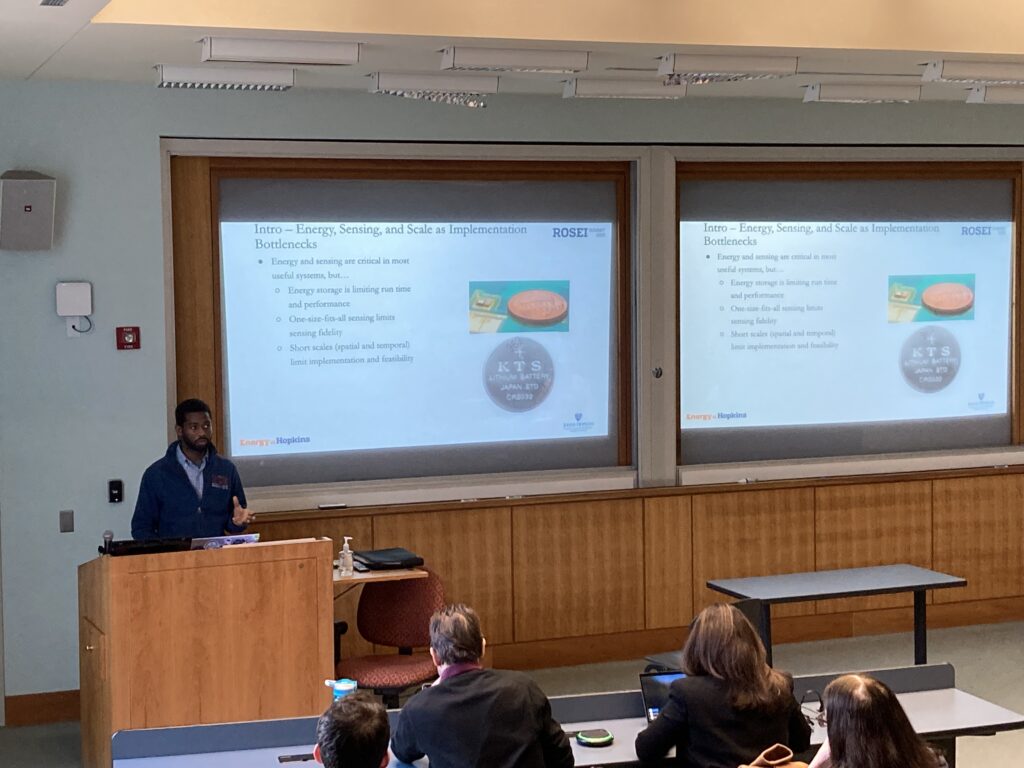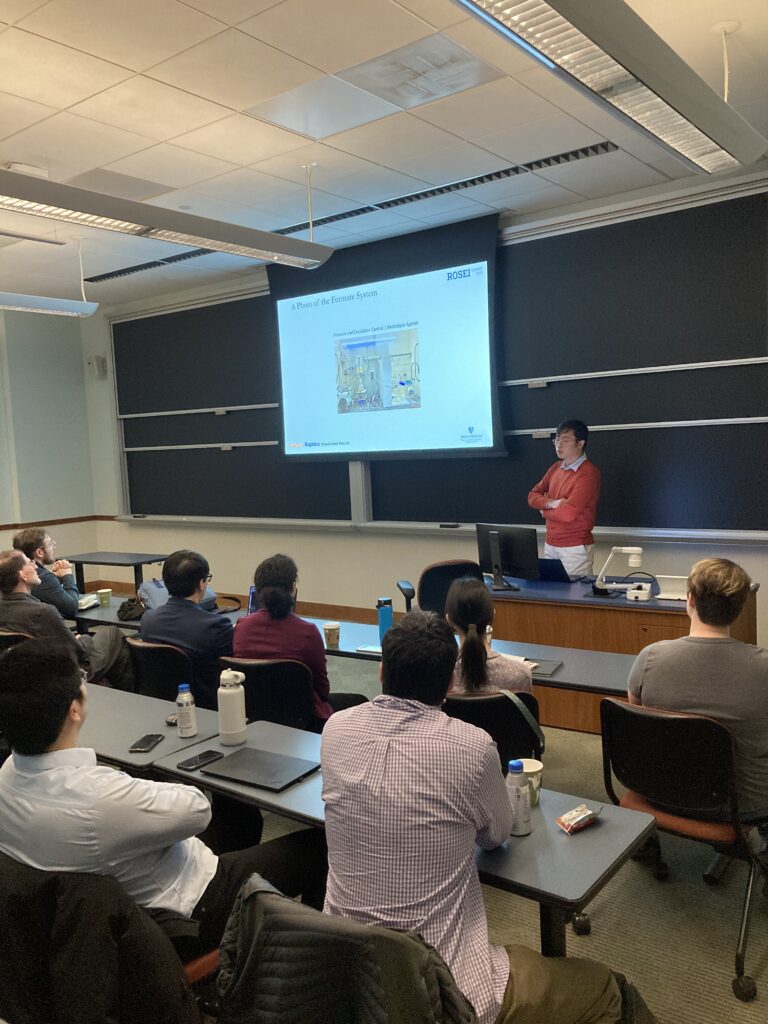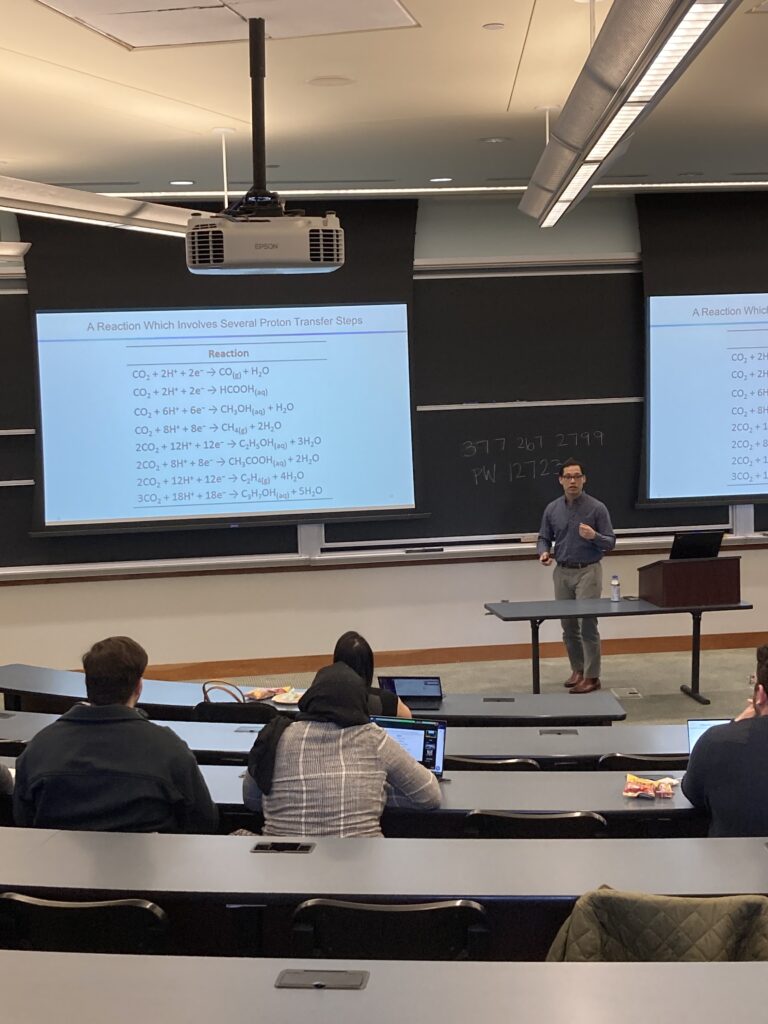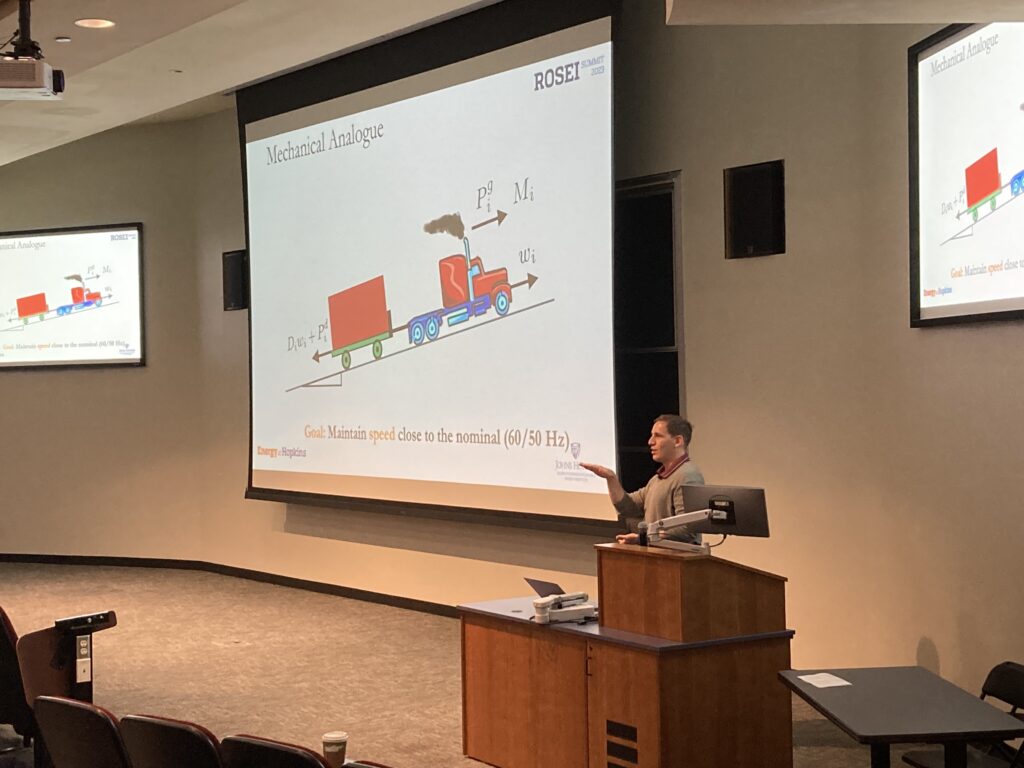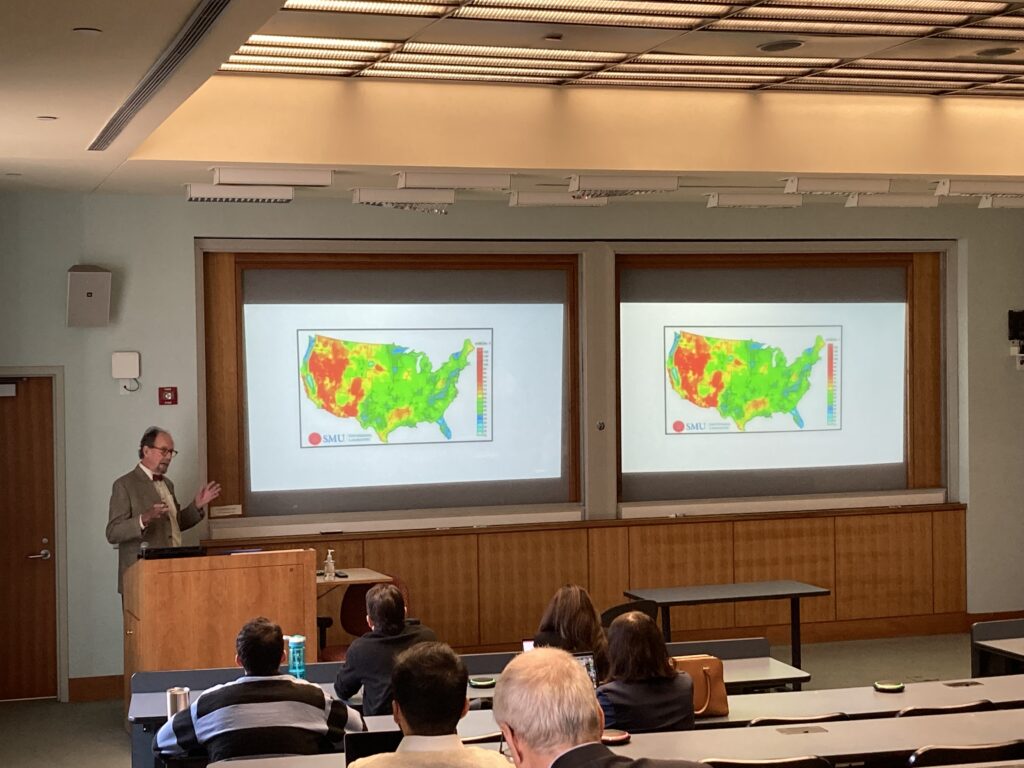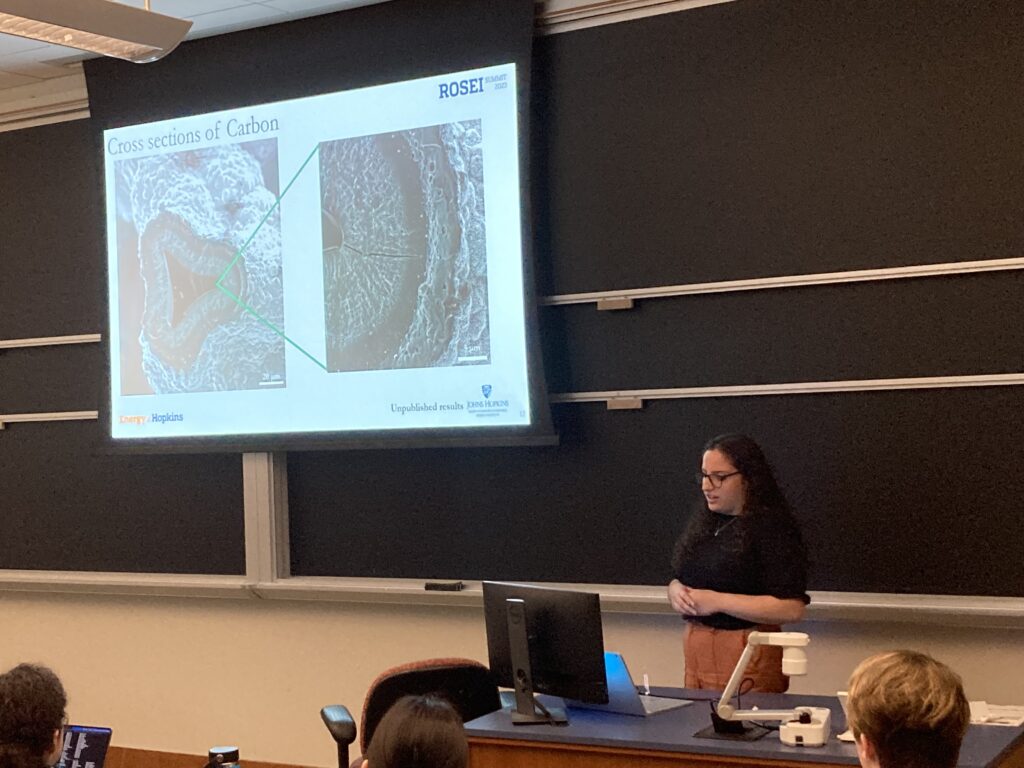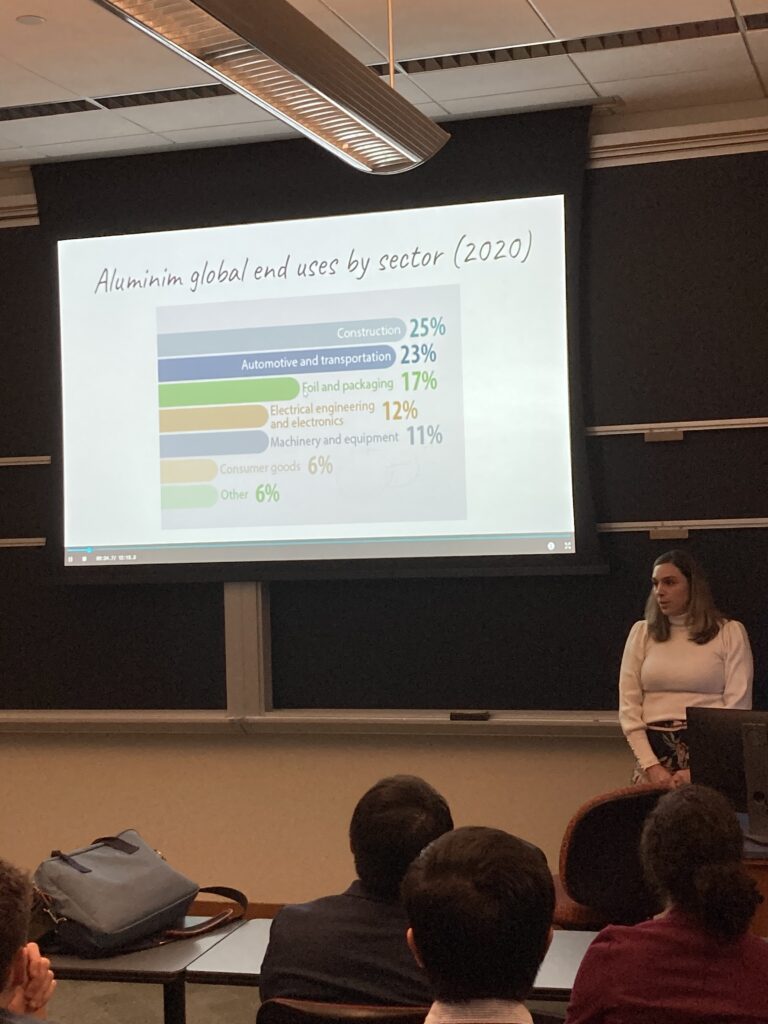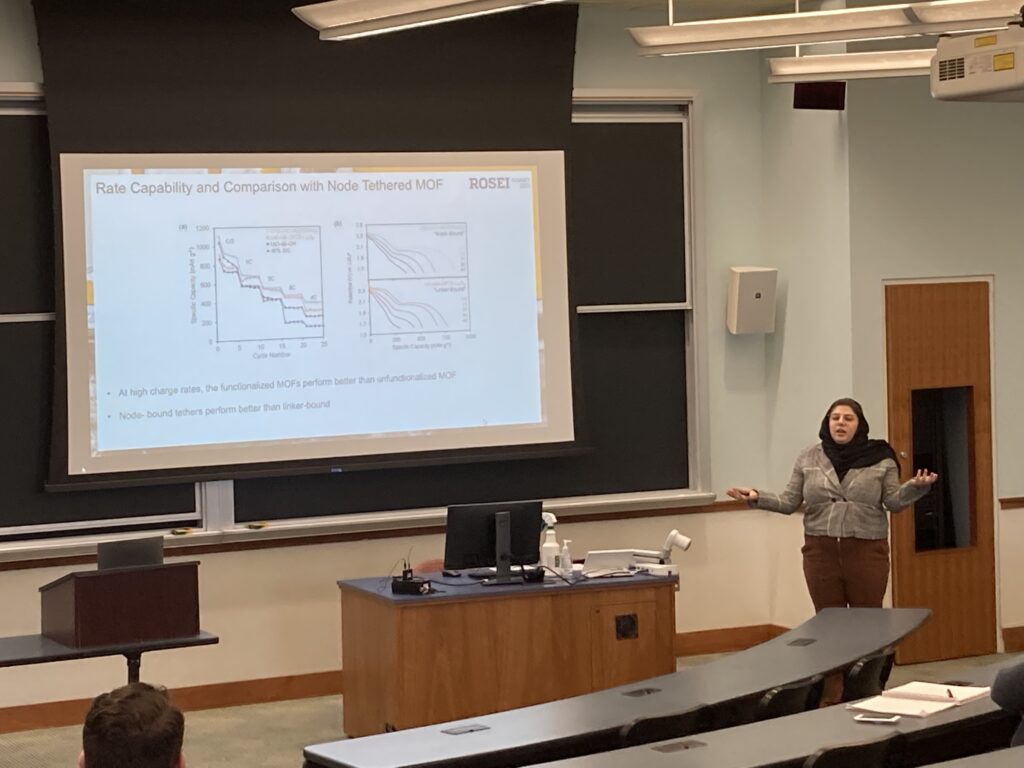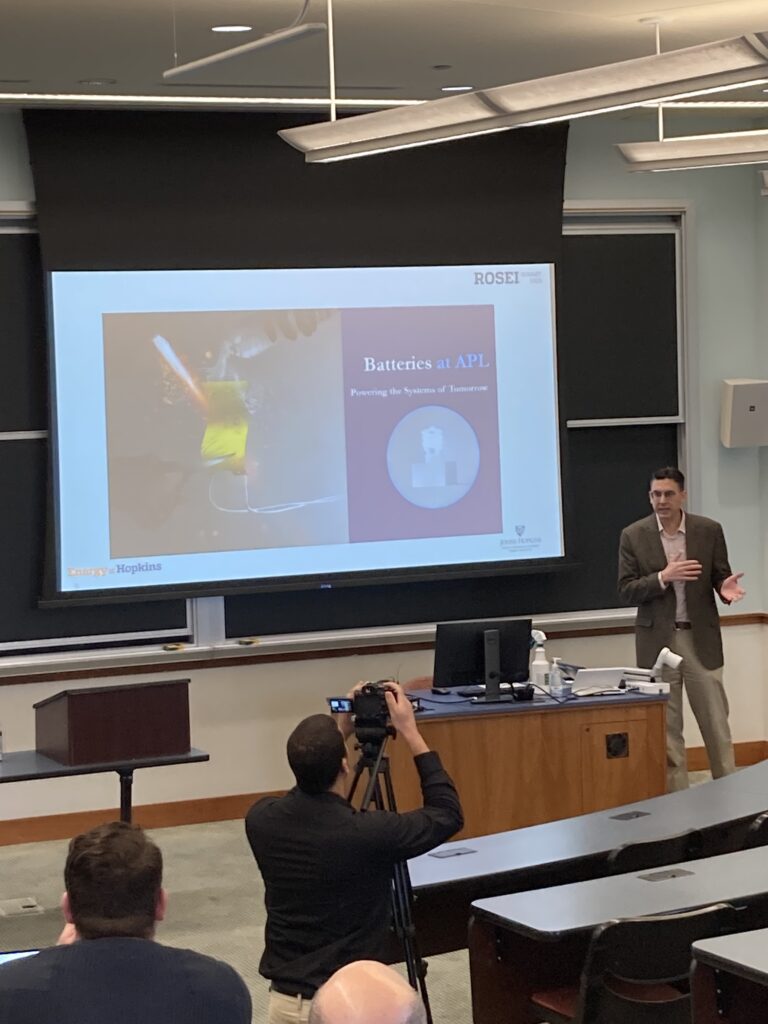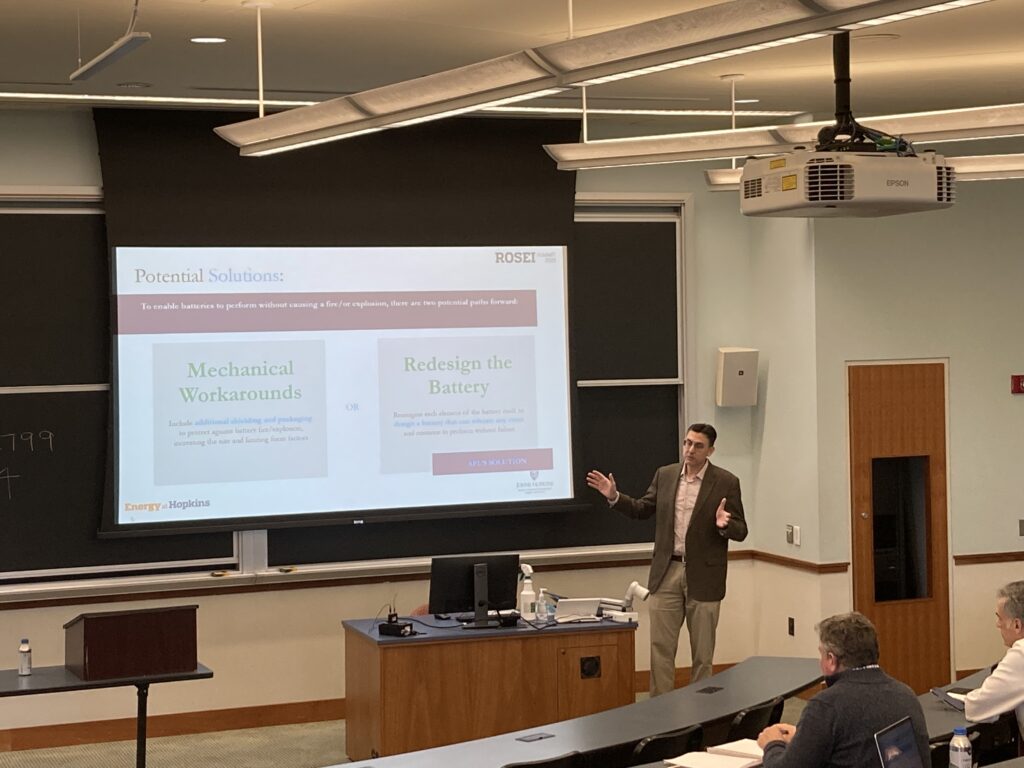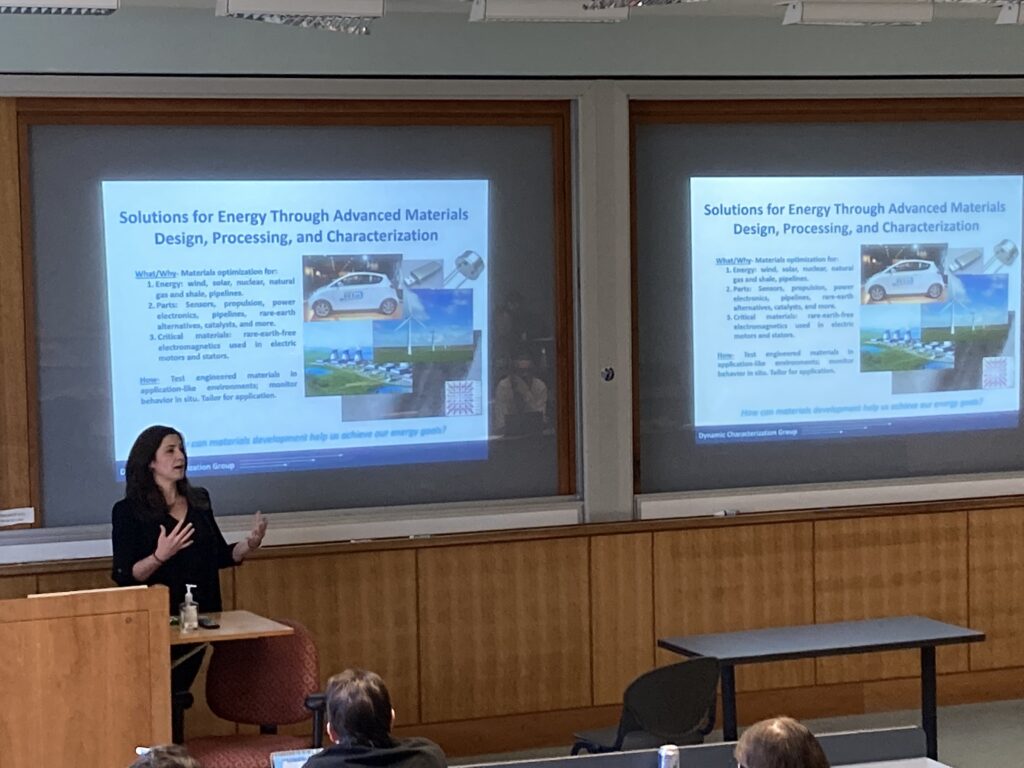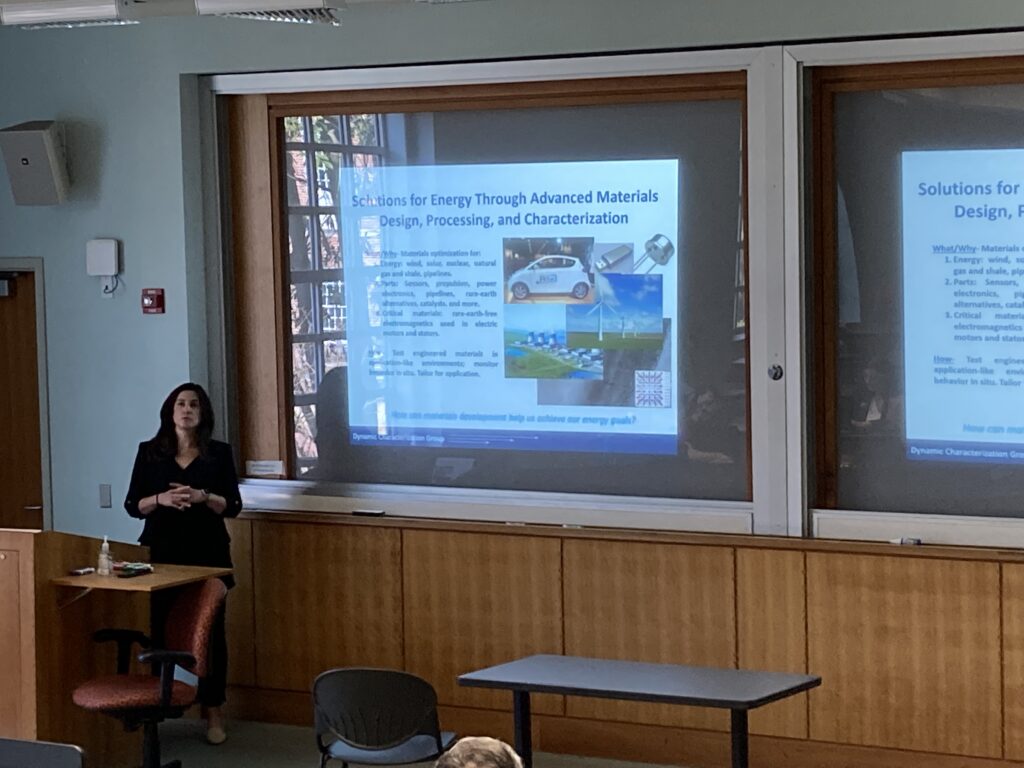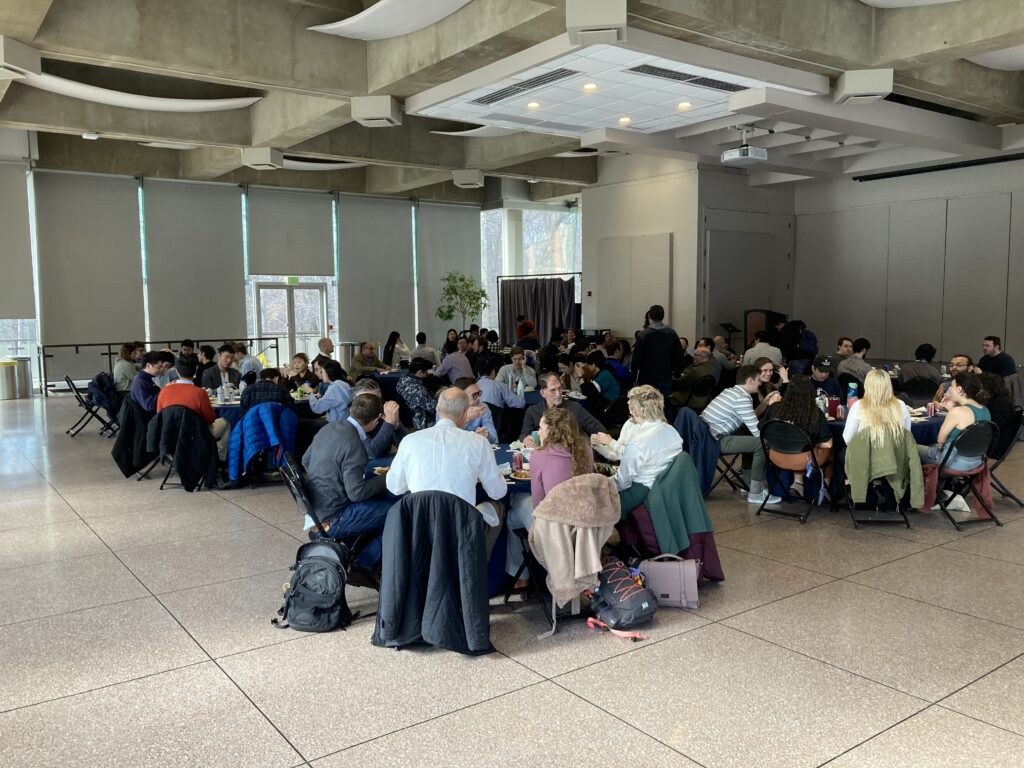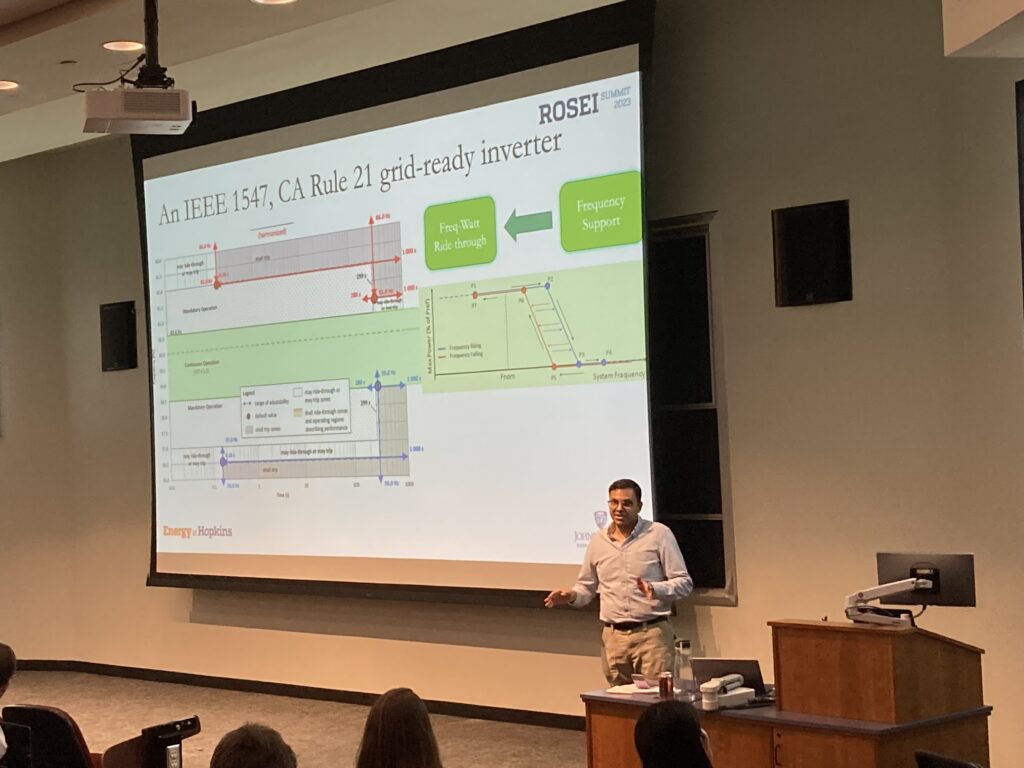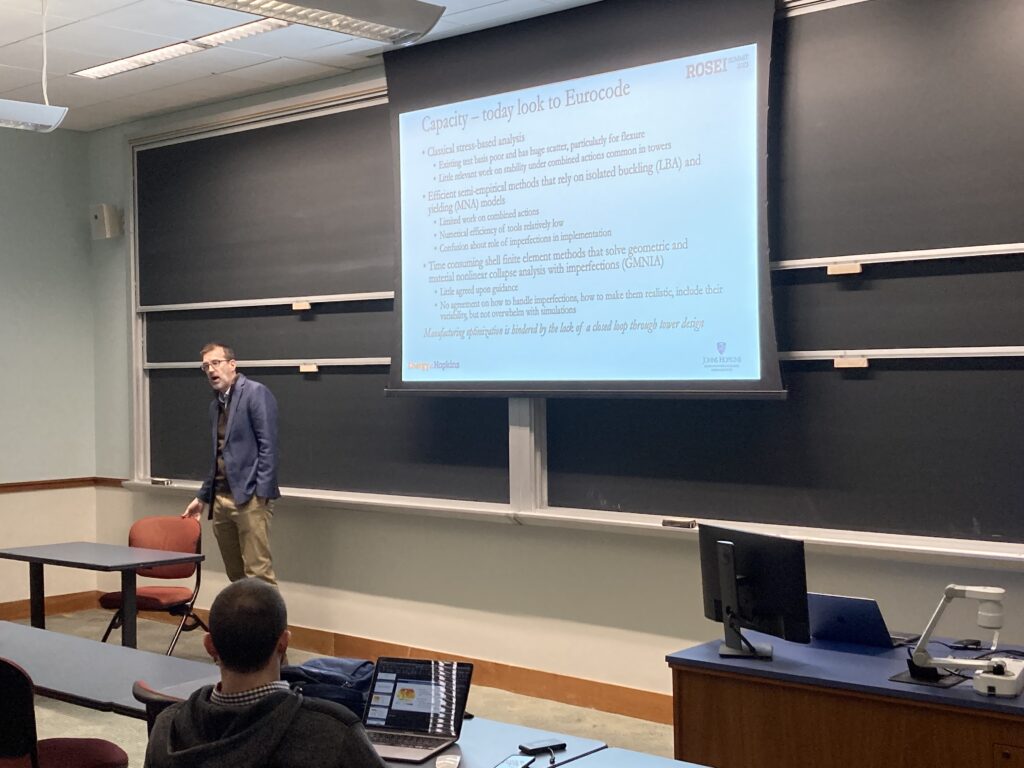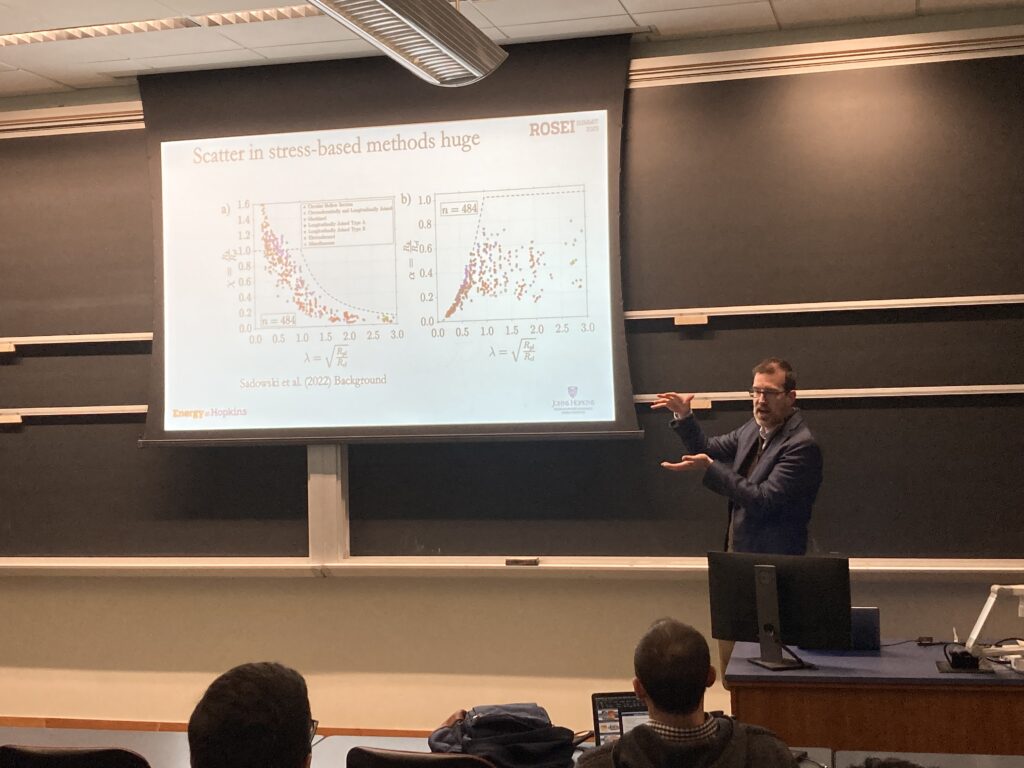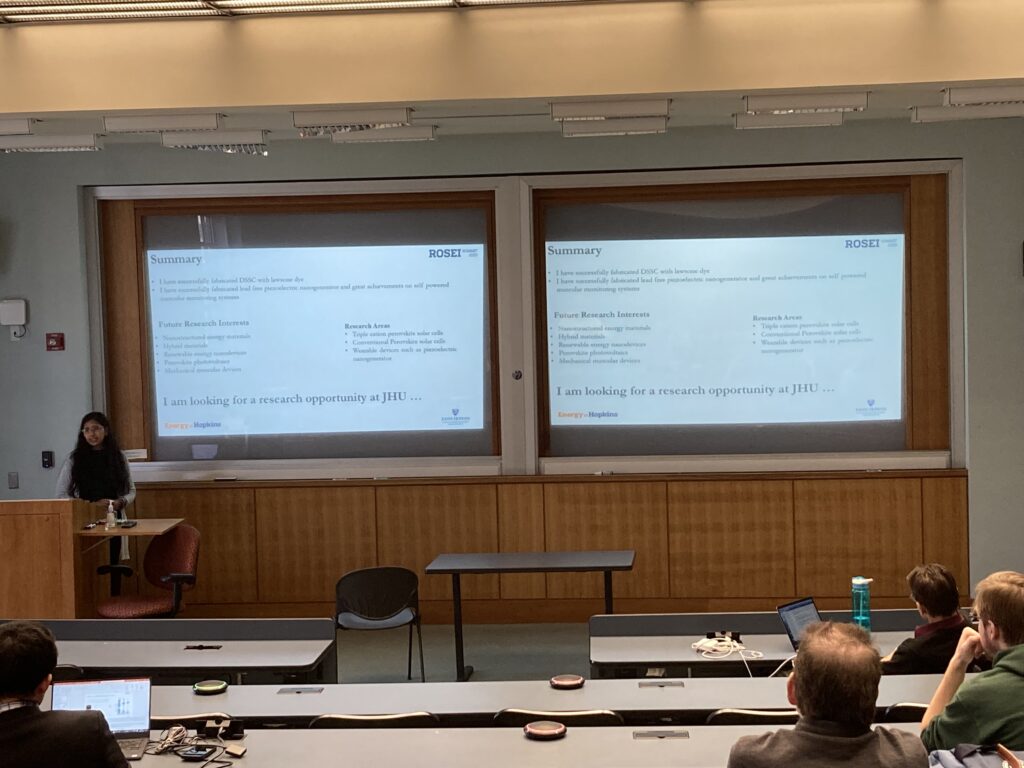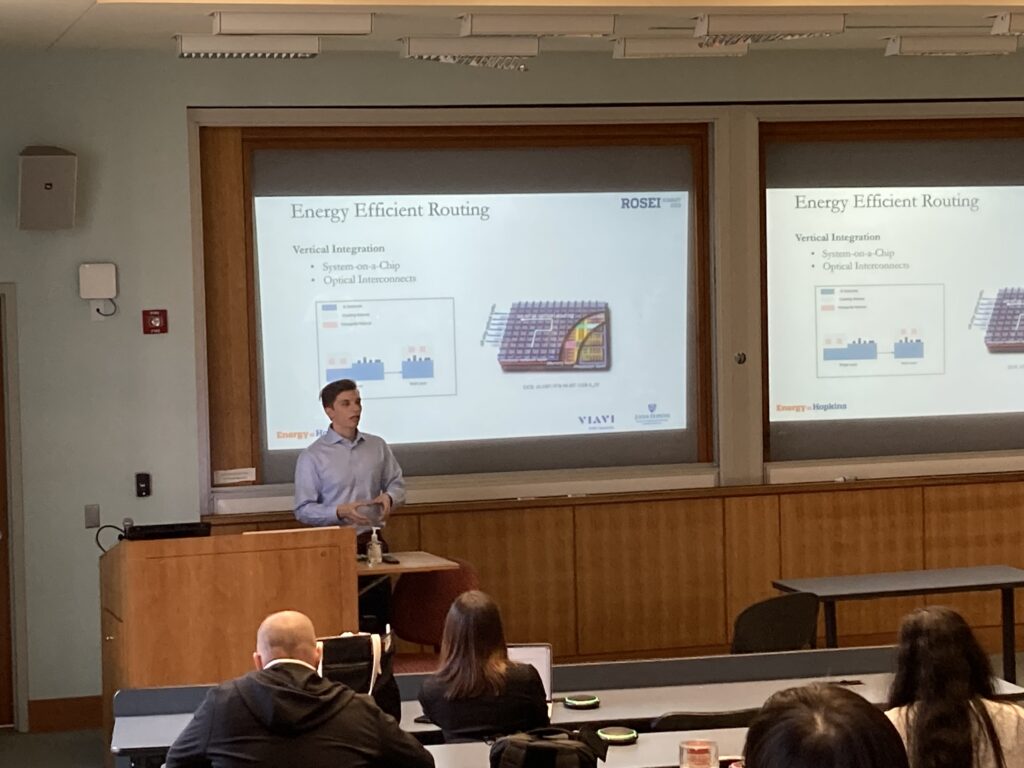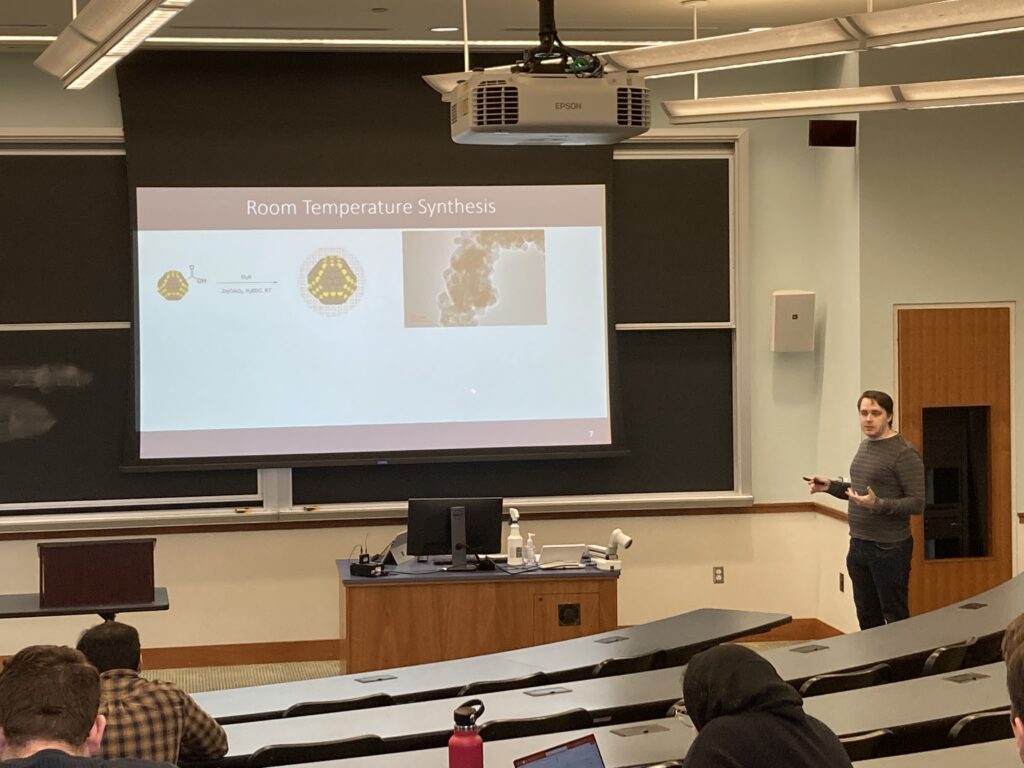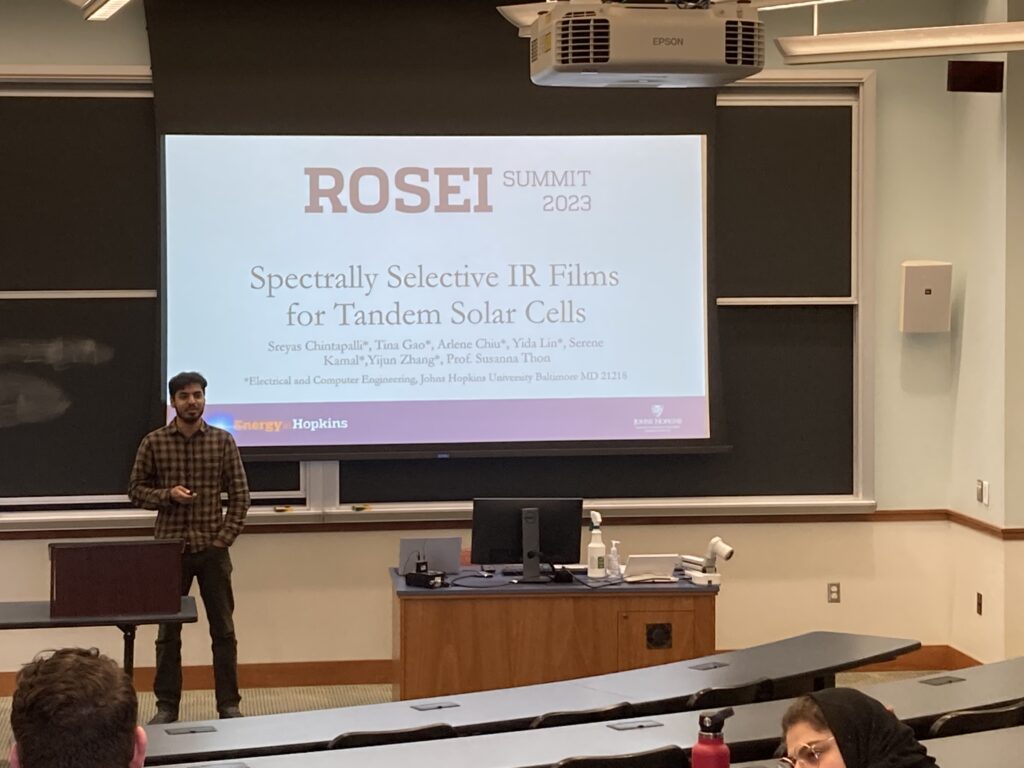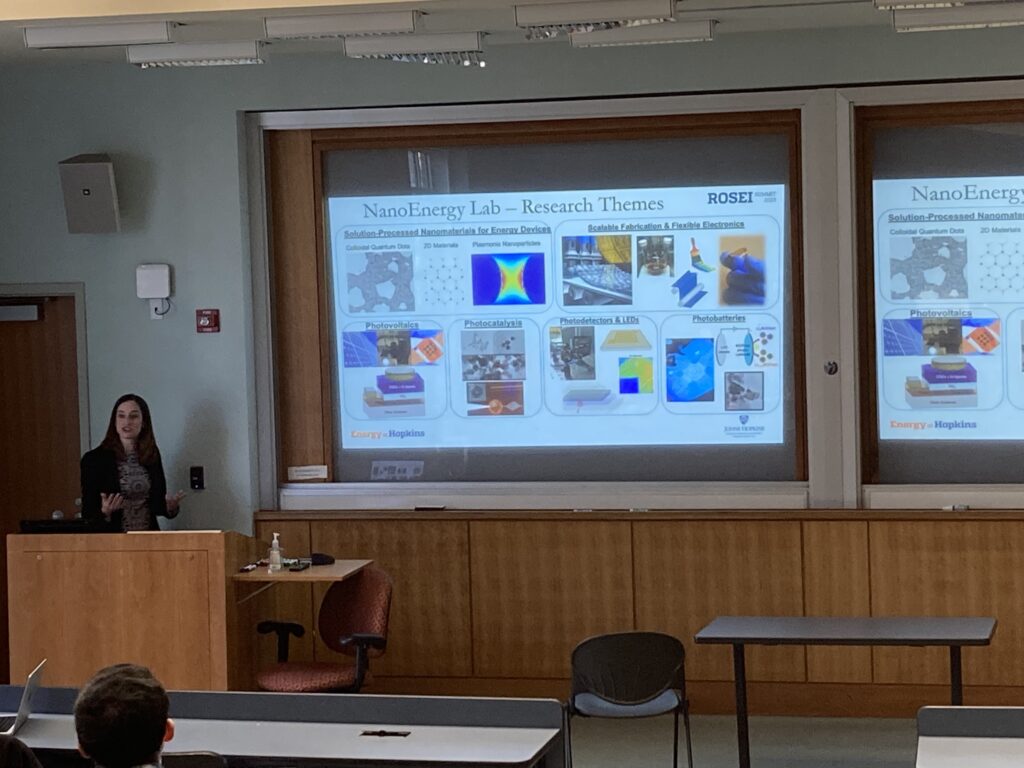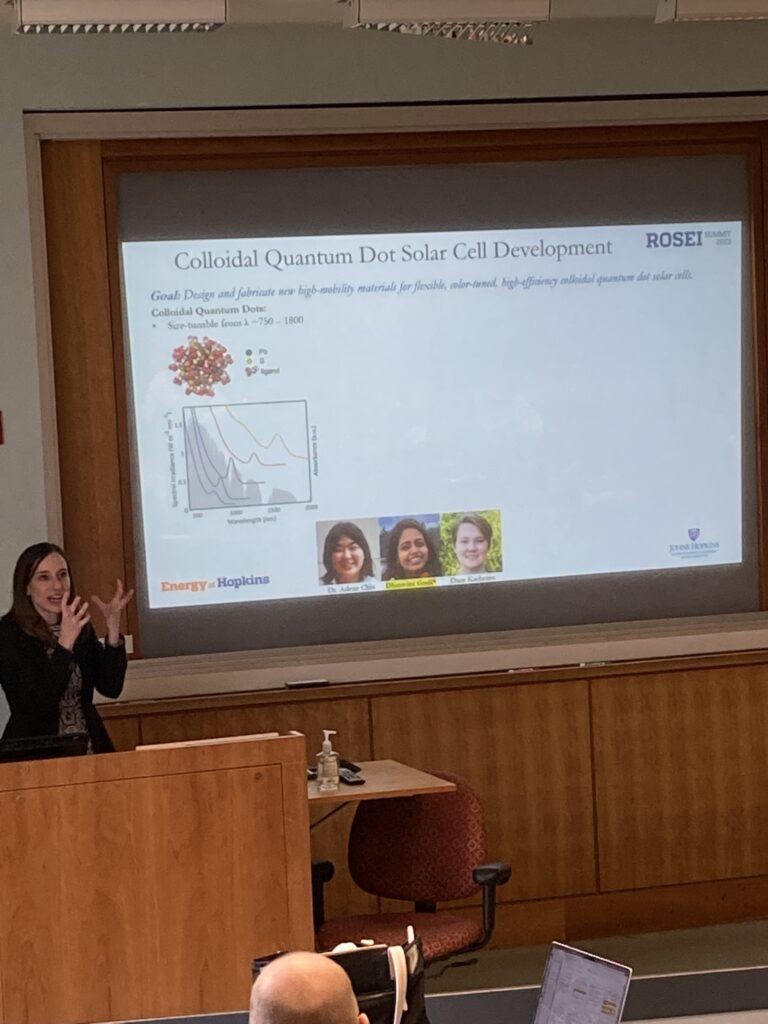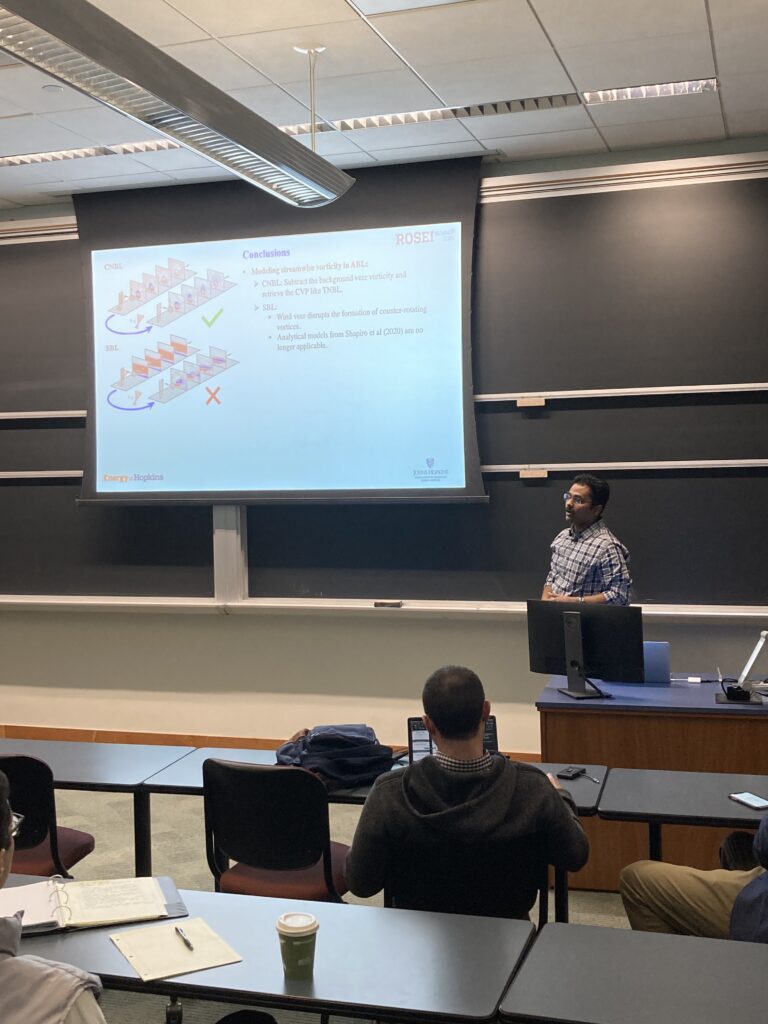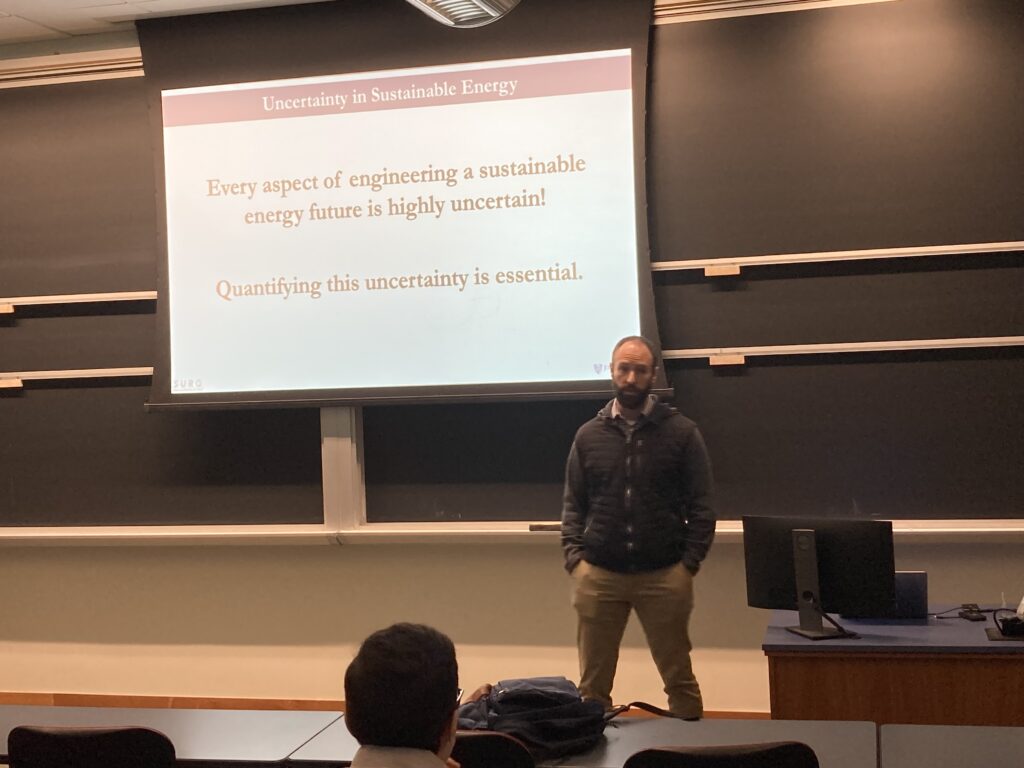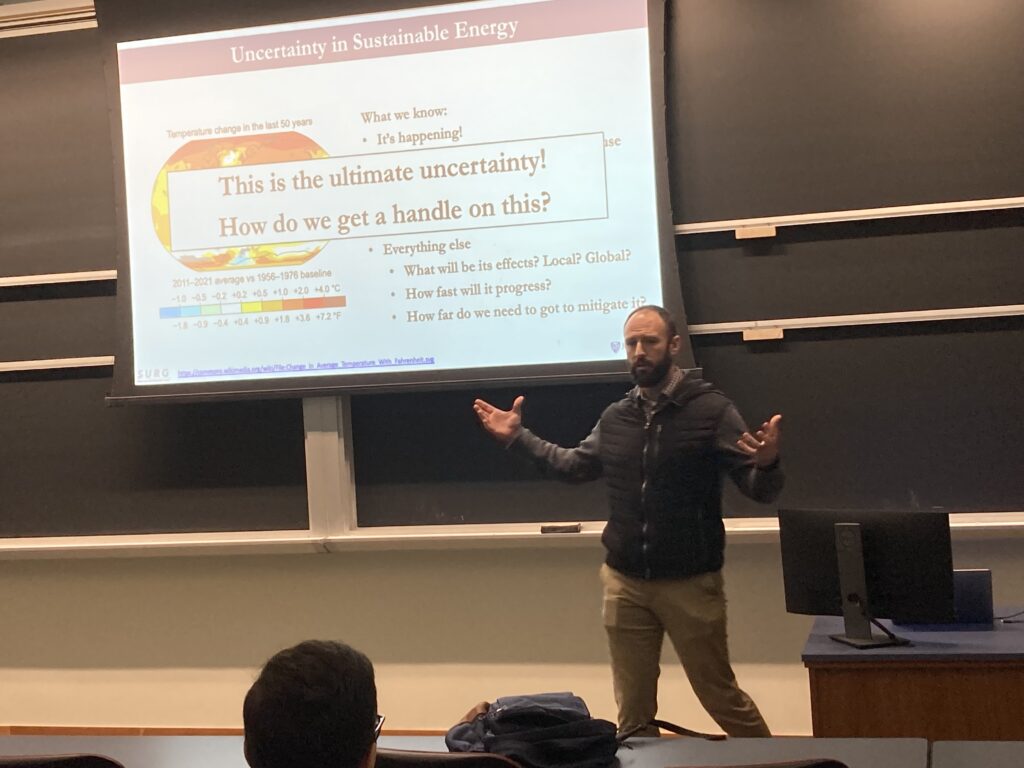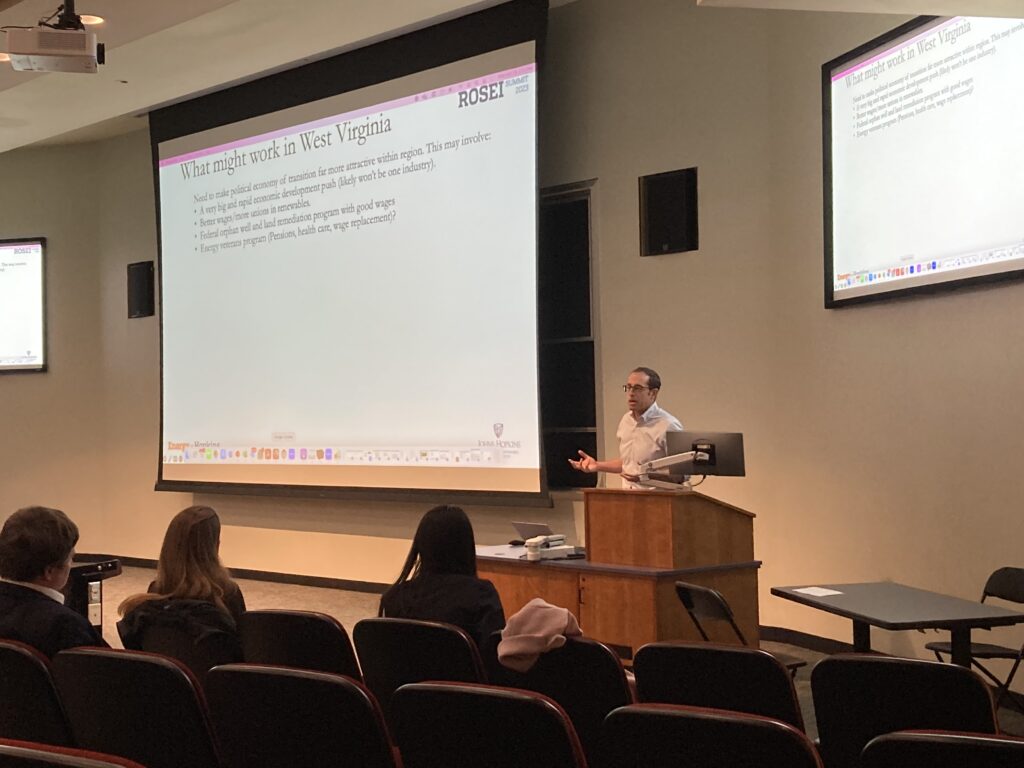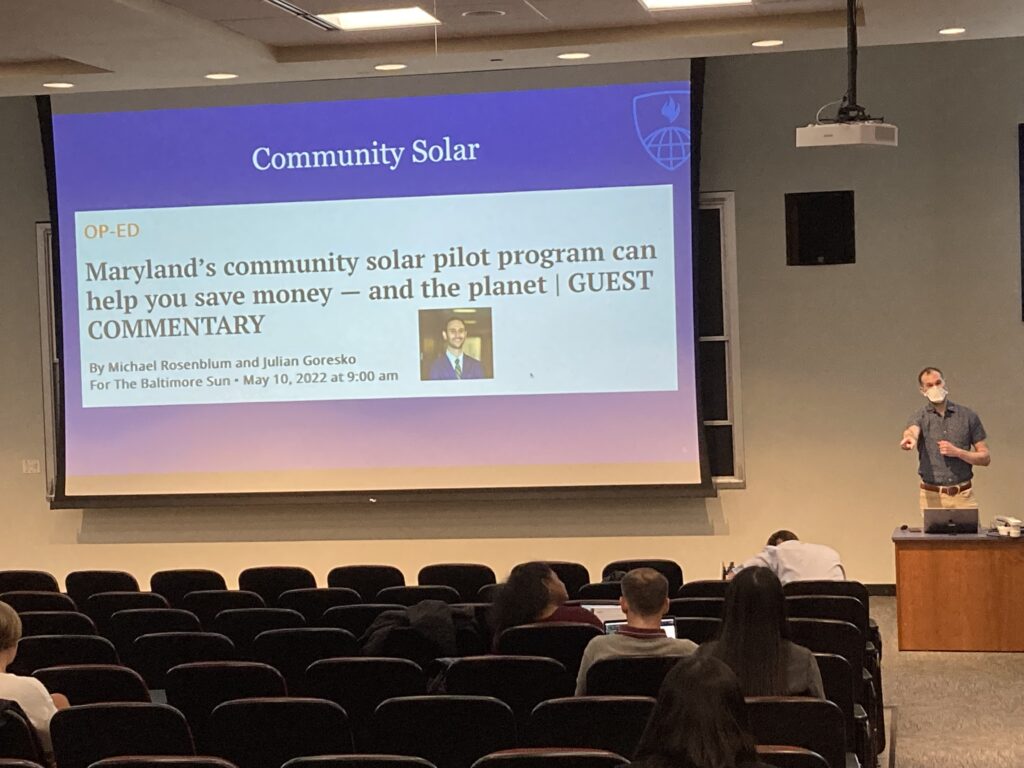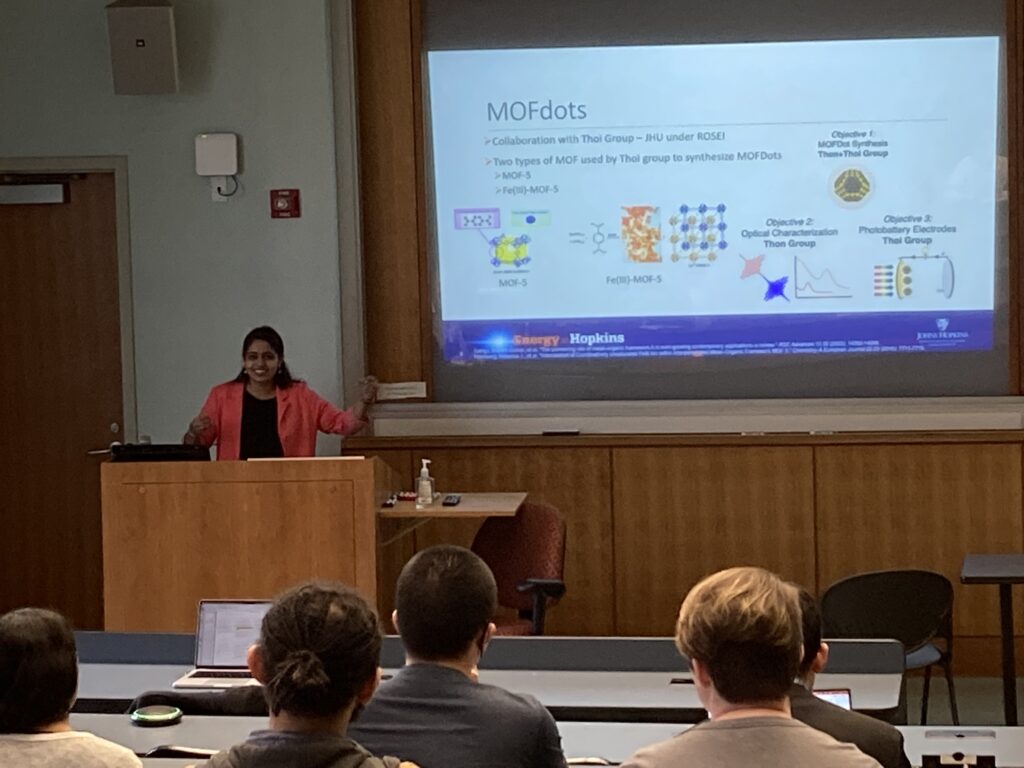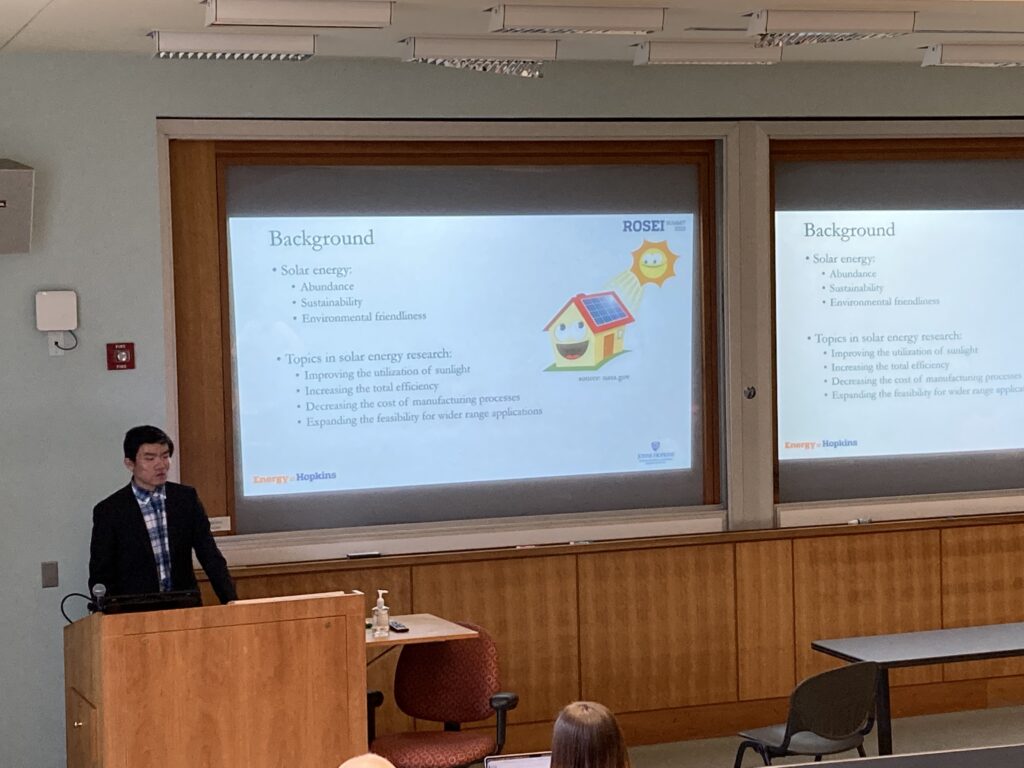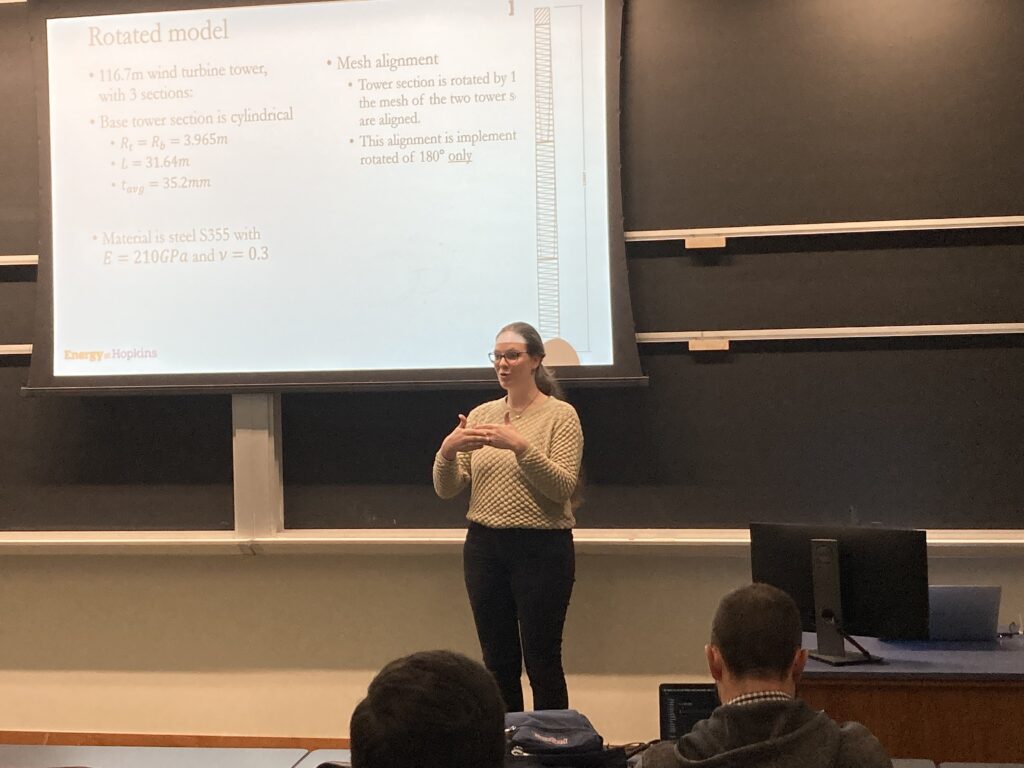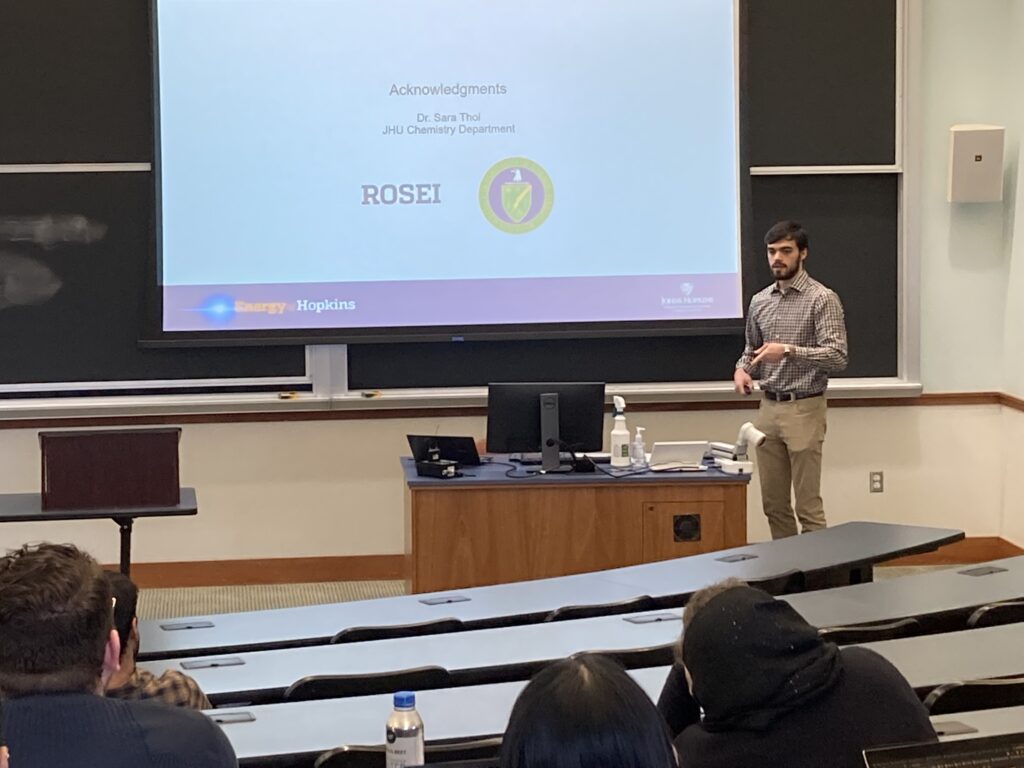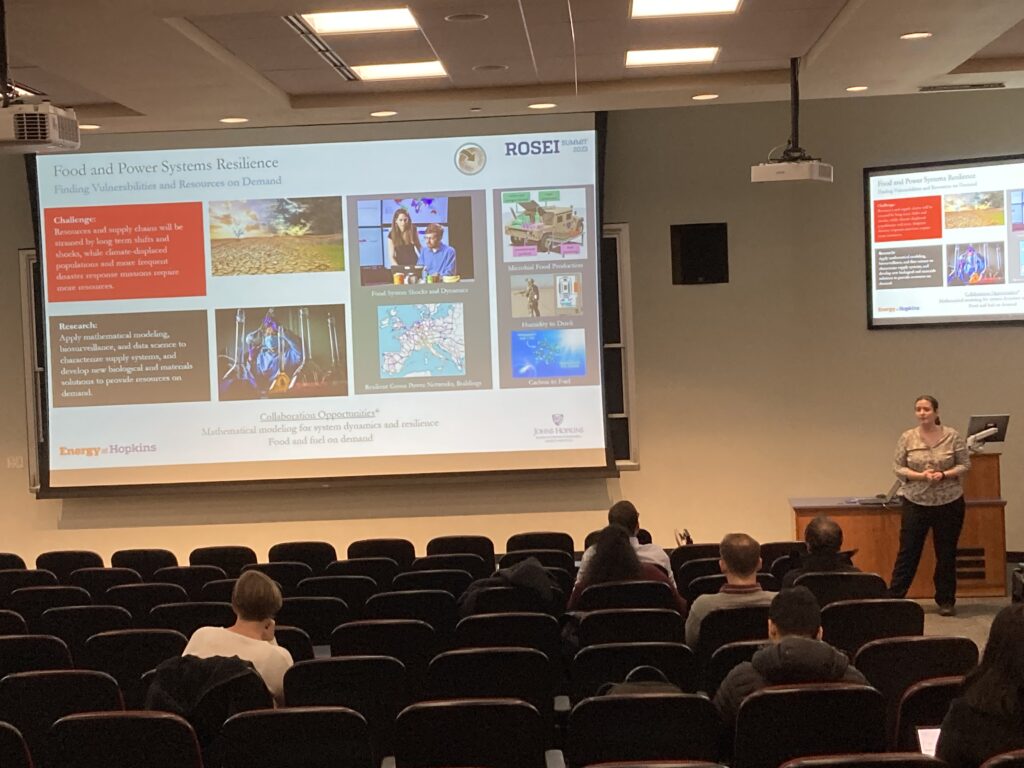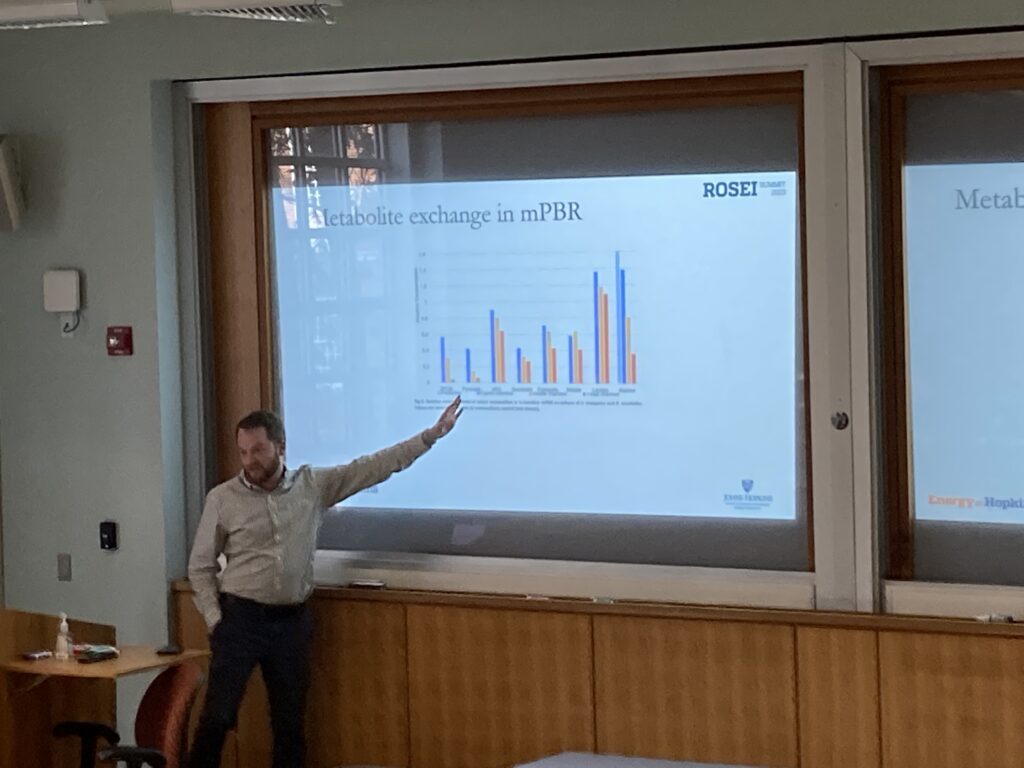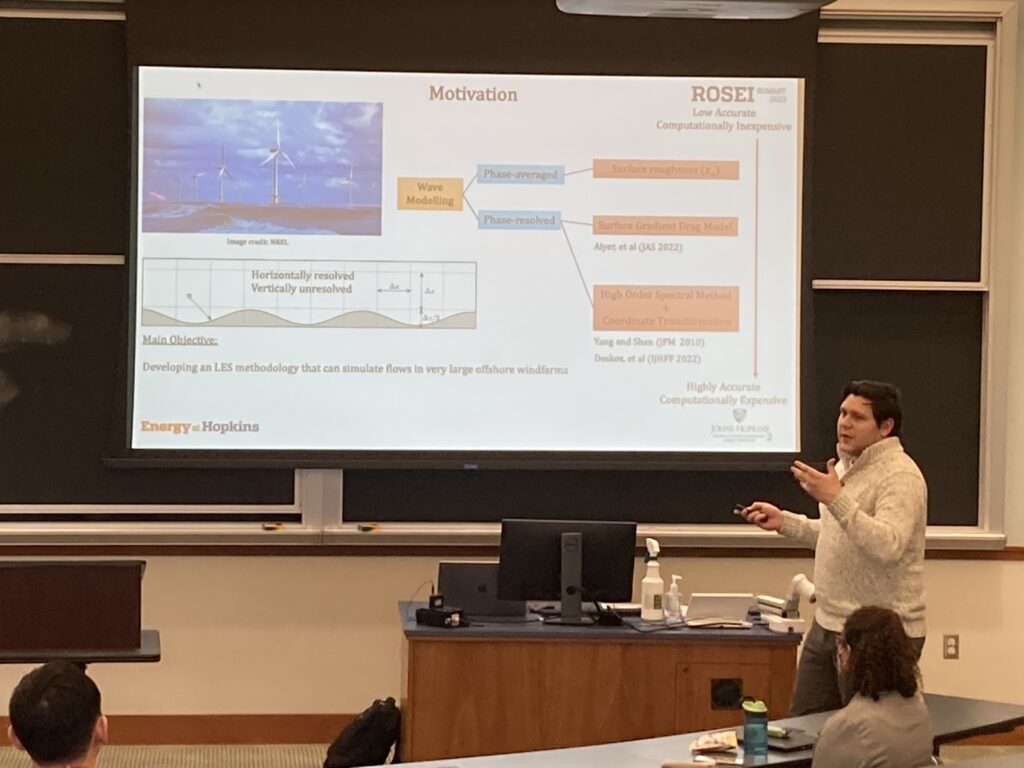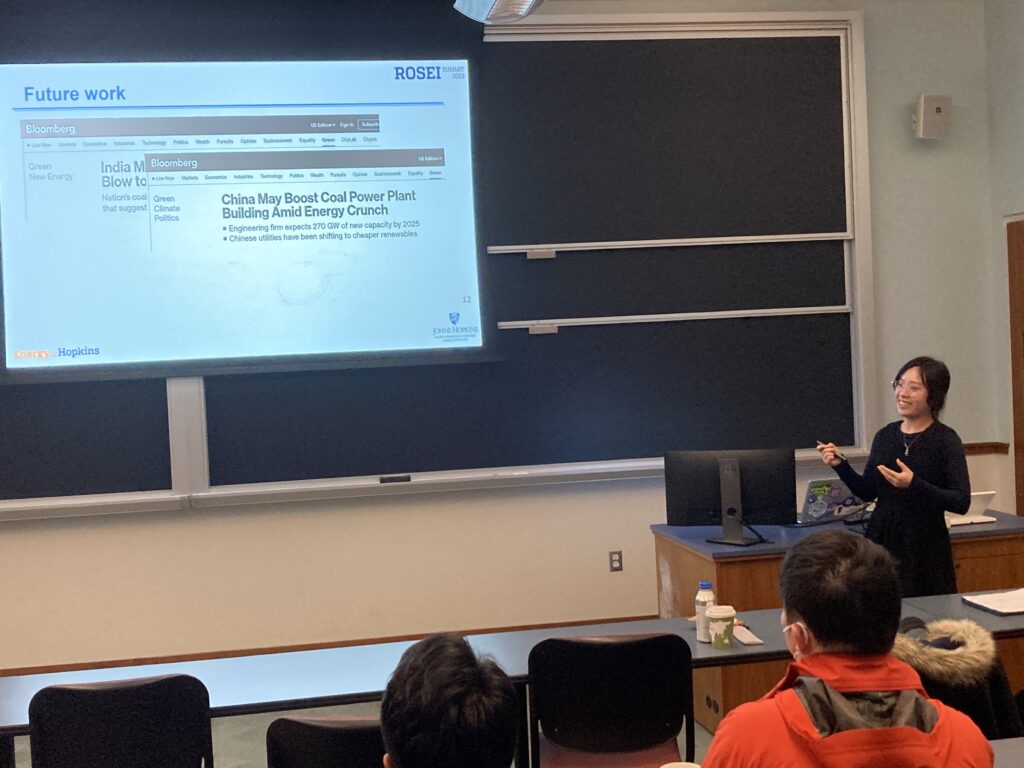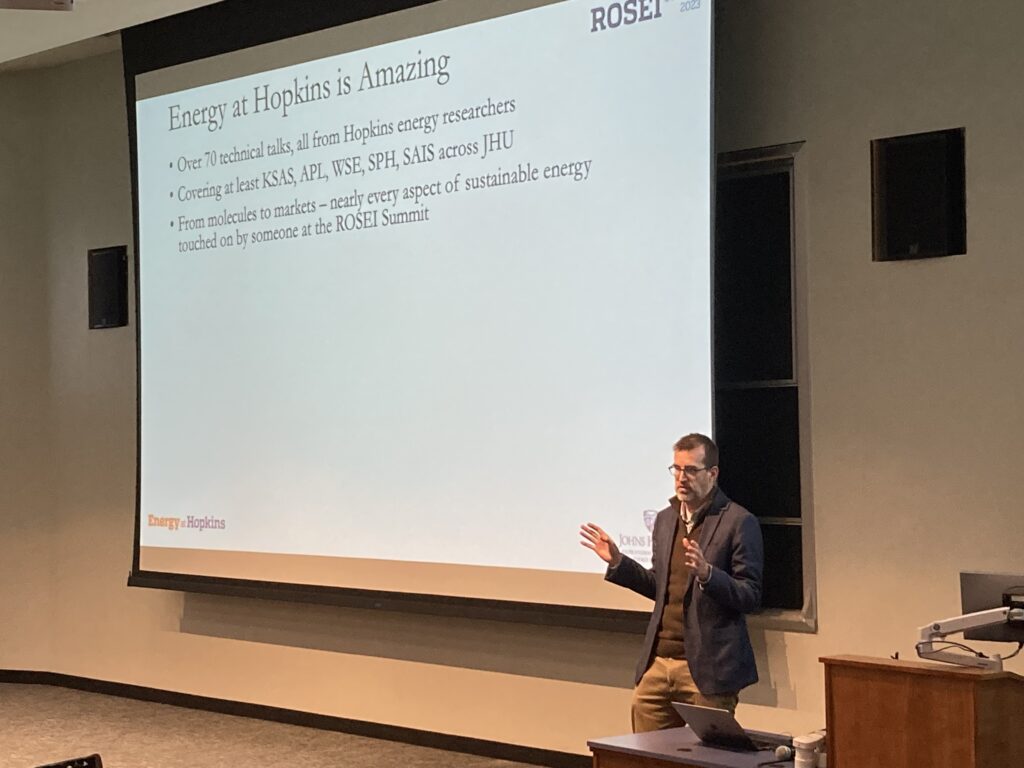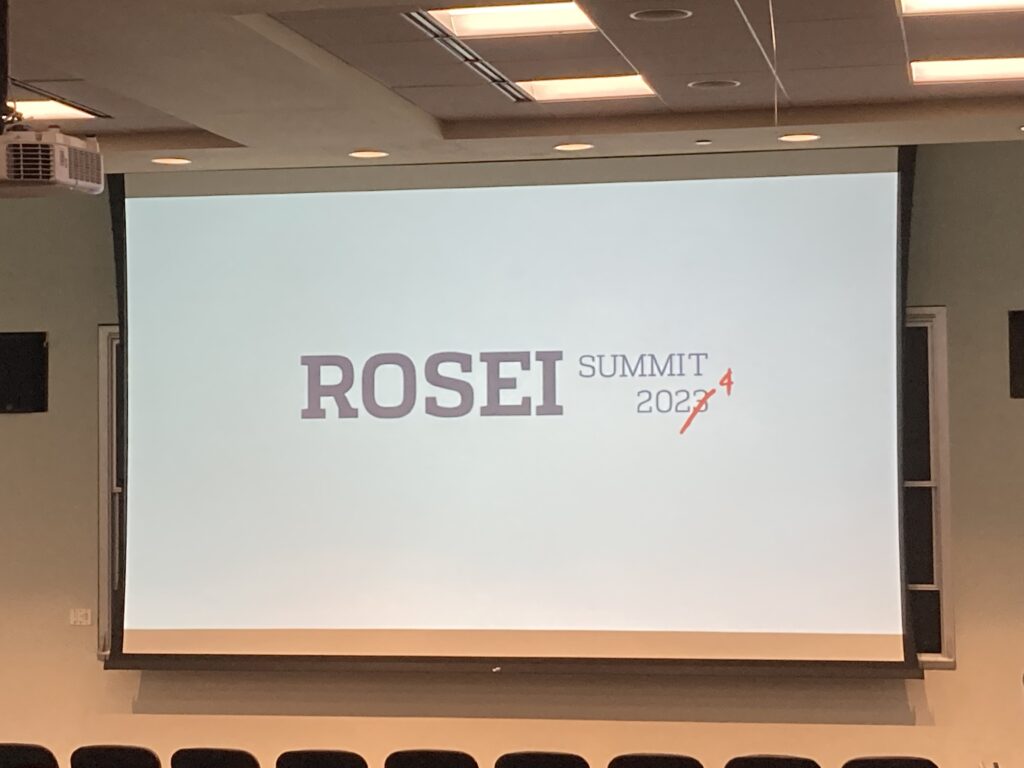The Ralph O’Connor Sustainable Energy Institute (ROSEI) had a big turnout for the inaugural ROSEI Summit for sustainable energy research at Johns Hopkins University (JHU). The Summit, which was held January 18 in Hodson Hall on the Homewood campus, is the first event of its kind for sustainable energy at JHU.
“I’m sure if you were asked a few years ago how many people you could get to attend an event strictly about energy at Hopkins, you would say something like 15 to 20 people. Not around 100, which is what we had today,” ROSEI Director Ben Schafer said during his closing remarks. “This event shows just how much work in energy is being conducted at Hopkins, and how people are attacking climate change from a variety of perspectives.”
The all-day event featured over 70 speakers from five different divisions at JHU: The Whiting School of Engineering (WSE), Krieger School of Arts & Sciences (KSAS), Applied Physics Lab (APL), the School of Advanced International Studies (SAIS) and Bloomberg School of Public Health (SPH).
Talks were grouped into sessions of four or five speakers by similar topics – such as carbon, solar or wind – but with an emphasis on putting together people who were approaching the same issue from different perspectives.
“We wanted this to be unlike most conferences that people attend in that we didn’t want to have groups where everyone is approaching the same problem similarly,” Schafer said. “A goal of ours for the ROSEI Summit was to have everyone learn something new about fields they don’t normally work in.”
Most speakers were given 15 minutes to present their work, though the discussions didn’t stop there. Speakers and attendees regularly spent their times between sessions conversing and connecting about all thing’s energy at Hopkins.
Speakers at the Summit were predominately faculty and graduate students. To Ben Link, ROSEI’s managing director, students being given the same chance to present their research as faculty was a highlight.
“It was great to see the students step up, hold the floor and add considerable value to the day,” Link said.
For Schafer, the event shows that there is a thriving sustainable energy community at Hopkins, and he hopes to bring them together more.
“The participation and feedback from the Summit have been superb. I am very proud of the ROSEI team for pulling this together,” Schafer said. “ROSEI is hosting more events throughout the rest of the year. Including at the national ARPA-E summit in late March in Washington DC, and of course for Earth Day. We hope to see you there.”
ROSEI plans to host the second iteration of this event in 2024.
Did you attend the Summit and have suggestions on how to enhance the day? Don’t hesitate to reach out to energy@jhu.edu with the subject line “ROSEI Summit Feedback.”
